Search Result
Results for "
ischemia and reperfusion injury
" in MedChemExpress (MCE) Product Catalog:
1
Biochemical Assay Reagents
3
Isotope-Labeled Compounds
| Cat. No. |
Product Name |
Target |
Research Areas |
Chemical Structure |
-
- HY-141625
-
|
|
HIF/HIF Prolyl-Hydroxylase
|
Others
|
|
TRC160334 is a hypoxia-inducible factor (HIF) hydroxylase inhibitor. TRC160334 can be used for the research of ischemia/reperfusion injury .
|
-
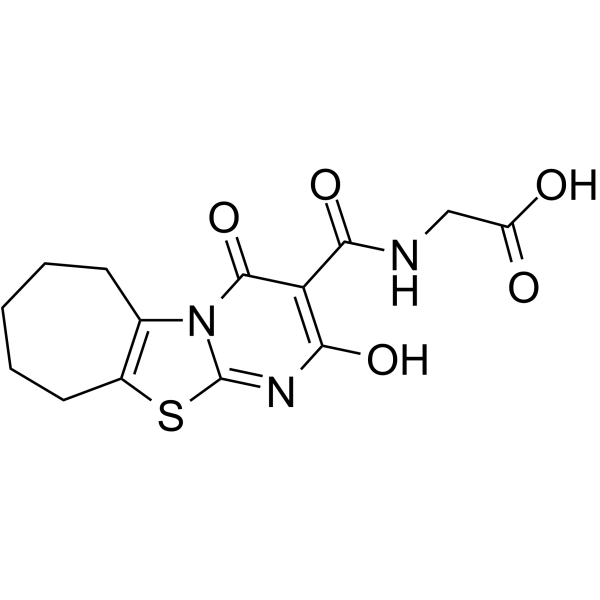
-
- HY-W015061
-
-
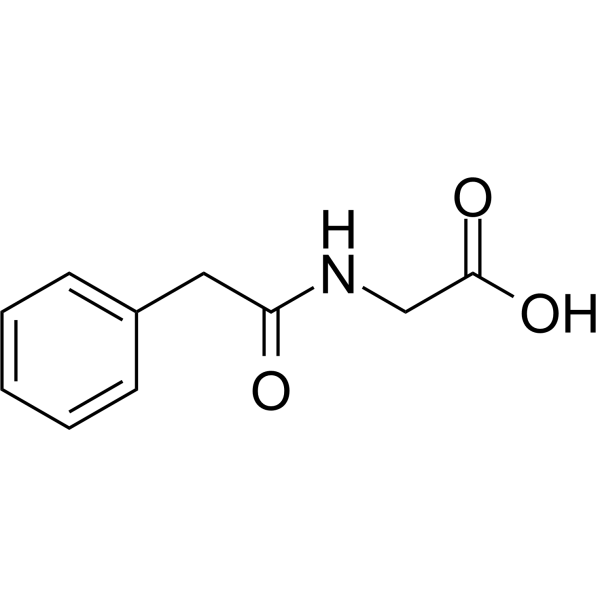
-
- HY-B0079
-
|
Org25969
|
Others
|
Cardiovascular Disease
Neurological Disease
|
|
Sugammadex sodium is a synthetic γ-cyclodextrin derivative, and acts as a reversal agent for neuromuscular block. Sugammadex sodium shows nephroprotective effect in ischemia-reperfusion injury .
|
-
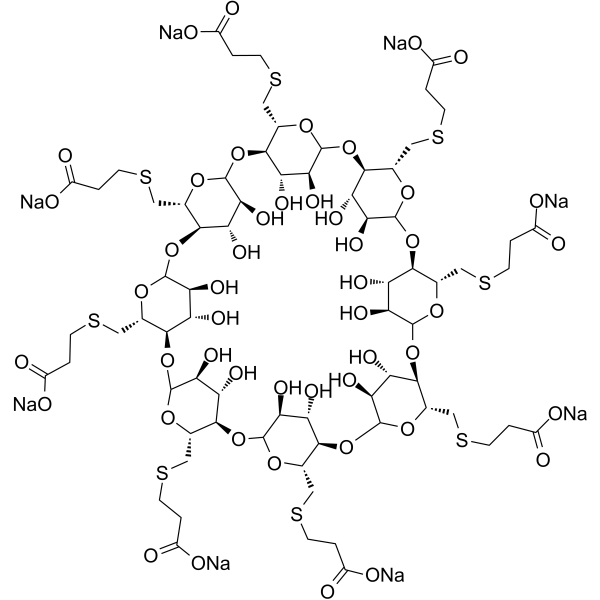
-
- HY-P99765
-
|
anti-LFA1
|
Integrin
|
Inflammation/Immunology
|
|
Odulimomab (anti-LFA1) is an anti-LFA-1 monoclonal antibody. Odulimomab inhibits proliferation of T lymphocyte and shows protective effects against ischemia and reperfusion injury. Odulimomab can be used for the research of transplant rejection and immunological disease .
|
-

-
- HY-119909
-
-
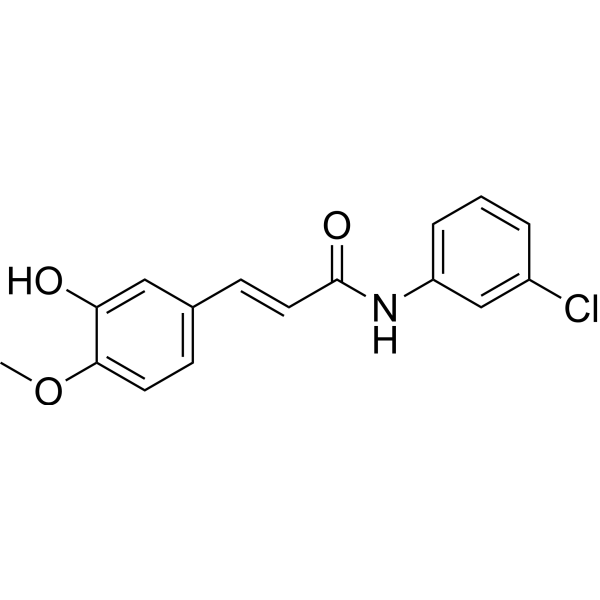
-
- HY-B0079A
-
|
Org25969 free acid
|
Others
|
Cardiovascular Disease
Neurological Disease
|
|
Sugammadex is a synthetic γ-cyclodextrin derivative, and acts as a reversal agent for neuromuscular block. Sugammadex shows nephroprotective effect in ischemia-reperfusion injury .
|
-
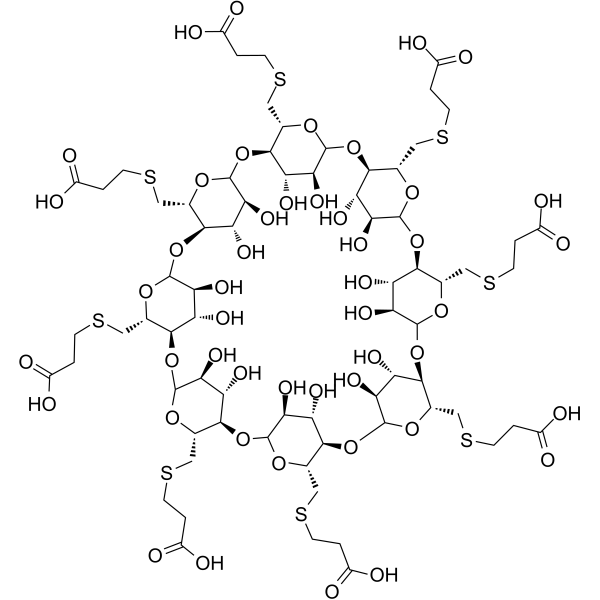
-
- HY-W006566
-
|
5-Aminoisoquinolin-1-one
|
PARP
|
Cancer
|
|
5-AIQ (5-Aminoisoquinolin-1-one) is a water-soluble PARP-1 inhibitor. 5-AIQ is an important functional group in various drugs. 5-AIQ reduces the tissue injury associated with ischemia-reperfusion of the liver, it can be used for the research of the research conditions associated with ischemia-reperfusion of the liver .
|
-
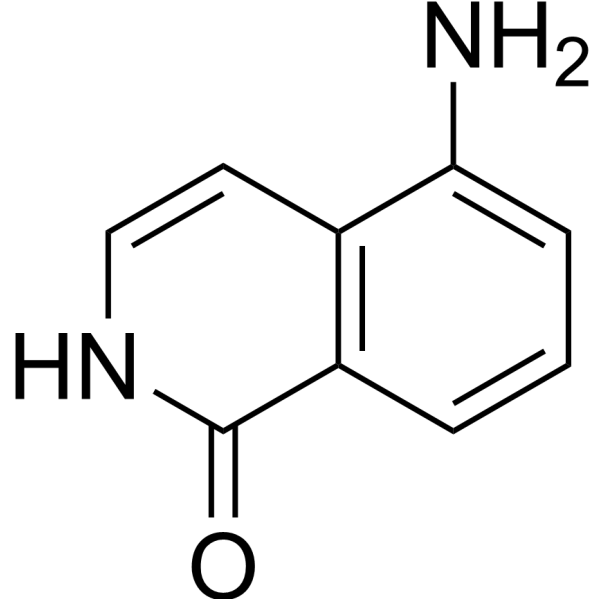
-
- HY-N2014
-
|
|
|
|
|
Verbenalin is Verbena glycoside, with anti-inflammatory, anti-fungal anti-virus activities. Verbenalin can be used for the research of prostatitis. Verbenalin can reduce cerebral ischemia-reperfusion injury .
|
-
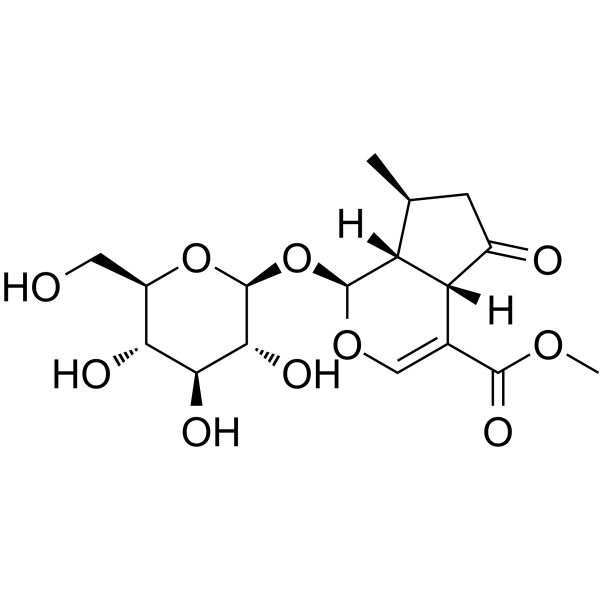
-
- HY-117243
-
|
|
Others
|
Cardiovascular Disease
|
|
GSK329 is a potent and selective diarylurea inhibitor of the cardiac-specific kinase TNNI3K. GSK329 exhibits positive cardioprotective outcomes in the model of ischemia/reperfusion cardiac injury .
|
-
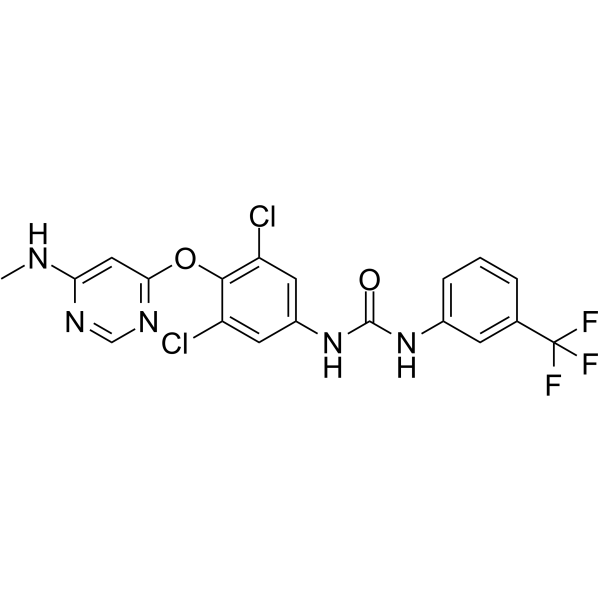
-
- HY-130272
-
|
|
Others
|
Cardiovascular Disease
|
|
Anti-MI/R injury agent 1 (compound 18), a Panaxatriol derivative, is an orally active, potent anti-myocardial ischemia/reperfusion (anti-MI/R) injury agent. Anti-MI/R injury agent 1 enhances oxygen-glucose deprivation and reperfusion (OGD/R)-induced cardiomyocyte injury cell viability. Anti-MI/R injury agent 1 can markedly reduce myocardial infarction size, decrease circulating cardiac troponin I (cTnI) leakage, and alleviate cardiac tissue damage in the rats .
|
-
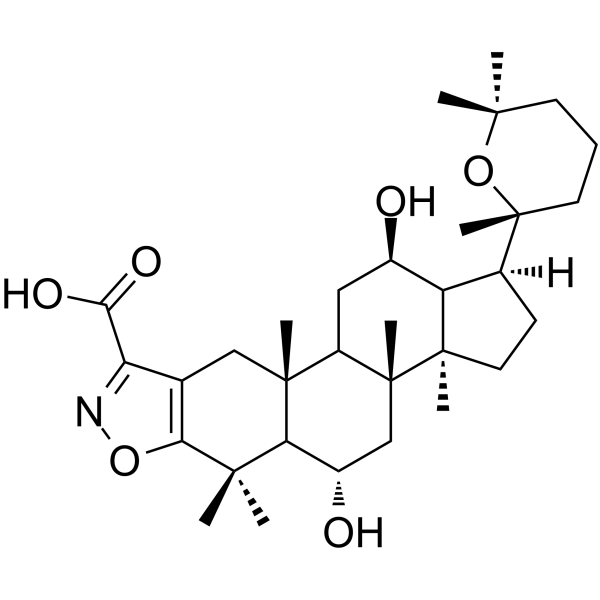
-
- HY-108457
-
|
9-Hydroxyphenanthrene; NSC 50554
|
TRP Channel
|
Cardiovascular Disease
|
|
9-Phenanthrol (9-Hydroxyphenanthrene) is a potent and selective human TRPM4 inhibitor, with an IC50 of 20 μM. 9-Phenanthrol can be used for the research of ischemia-reperfusion injury .
|
-
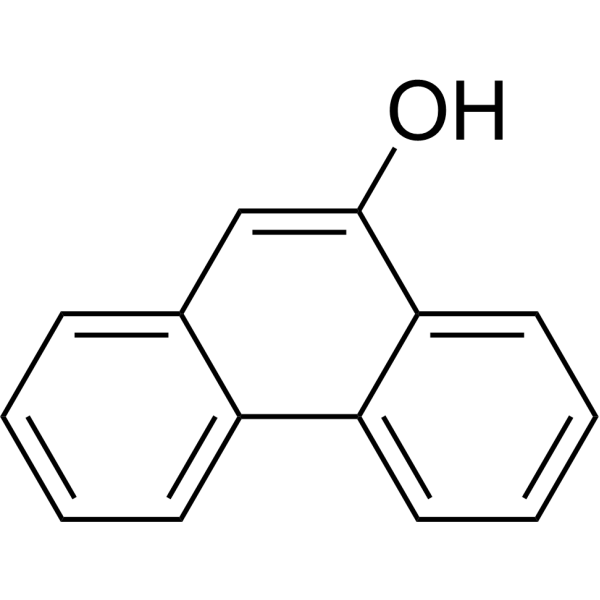
-
- HY-136744
-
|
Ac-LEHD-cmk
|
Caspase
|
Cardiovascular Disease
|
|
Caspase-9 Inhibitor III (Ac-LEHD-cmk) is a caspase-9 inhibitor. Caspase-9 Inhibitor III exhibits protective effects on ischemia-reperfusion-induced myocardial injury .
|
-
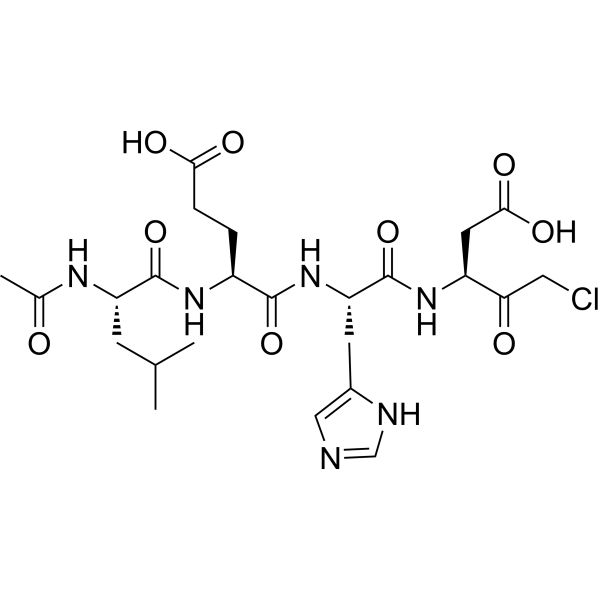
-
- HY-121726
-
|
|
mTOR
Autophagy
|
Cardiovascular Disease
|
|
3HOI-BA-01 is amTORinhibitor.3HOI-BA-01reduces infarct size and inducedautophagyin a murine myocardial ischemia/reperfusion injury model .
|
-
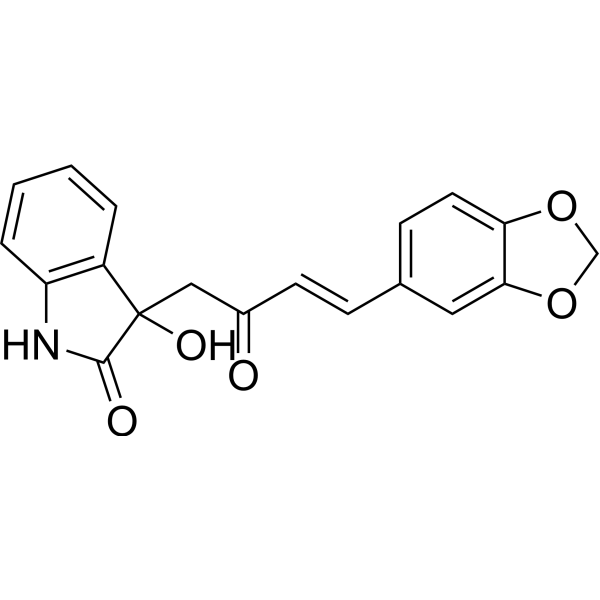
-
- HY-E70008
-
|
|
Sirtuin
|
Inflammation/Immunology
|
|
Lumbokinase capsules attenuates myocardial ischemia-reperfusion (I-R) injury through the activation of Sirt1 signaling, and thus enhances autophagic flux and reduces I-R-induced oxidative damage, inflammation and apoptosis .
|
-

-
- HY-132280
-
|
U 74006F free base
|
Antibiotic
|
Infection
Neurological Disease
|
|
Tirilazad is a nonglucocorticoid, 21-aminosteroid that inhibits lipid peroxidation. Tirilazad can attenuate brain or spinal cord injury caused by trauma, stroke, ischemia and reperfusion injury. Tirilazad has antiviral activities against nCoV. Tirilazad is neuroprotective for ischaemic stroke, can be used for subarachnoid hemorrhage research .
|
-
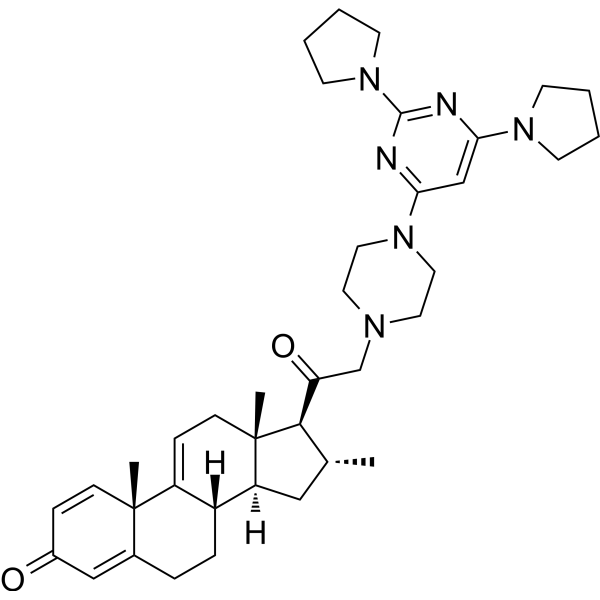
-
- HY-13315S1
-
|
MK0476-d6
|
Leukotriene Receptor
|
Inflammation/Immunology
|
|
Montelukast-d6 (sodium) is the deuterium labeled Montelukast (sodium). Montelukast sodium is a potent, selective and orally active antagonist of cysteinyl leukotriene receptor 1 (Cysltr1). Montelukast sodium can be used for the reseach of asthma and liver injury. Montelukast sodium also has an antioxidant effect in intestinal ischemia-reperfusion injury, and could reduce cardiac damage[1].
|
-
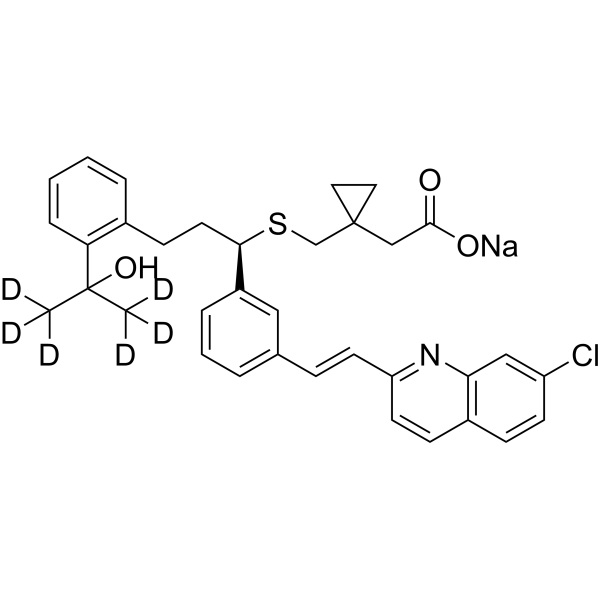
-
- HY-13315S
-
|
MK0476-d6 free acid
|
Isotope-Labeled Compounds
Leukotriene Receptor
|
Inflammation/Immunology
|
|
Montelukast-d6 is the deuterium labeled Montelukast (sodium). Montelukast sodium is a potent, selective and orally active antagonist of cysteinyl leukotriene receptor 1 (Cysltr1). Montelukast sodium can be used for the reseach of asthma and liver injury. Montelukast sodium also has an antioxidant effect in intestinal ischemia-reperfusion injury, and could reduce cardiac damage[1].
|
-
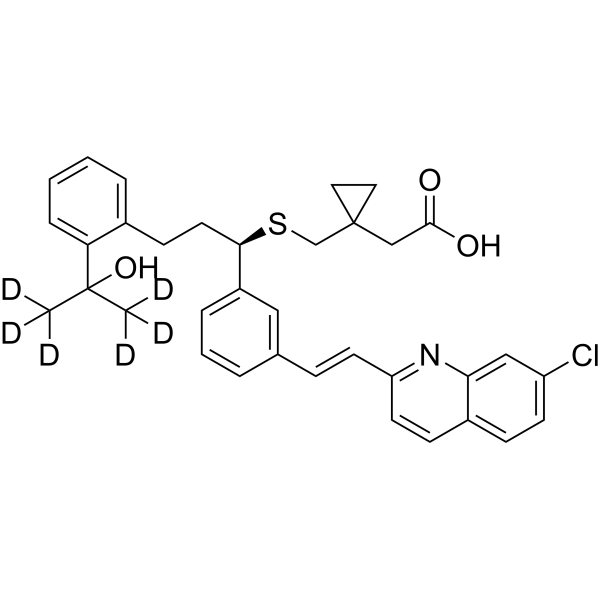
-
- HY-106262
-
|
KAI-9803; BMS-875944
|
PKC
|
Cardiovascular Disease
Inflammation/Immunology
|
|
Delcasertib (KAI-9803) is a potent and selective δ-protein kinase C (δPKC) inhibitor. Delcasertib (KAI-9803) could ameliorate injury associated with ischemia and reperfusion in animal models of acute myocardial infarction (MI) .
|
-
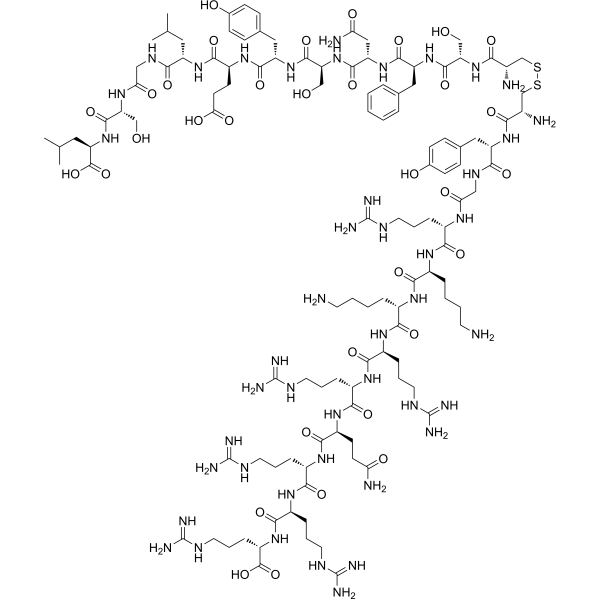
-
- HY-106262B
-
|
KAI-9803 hydrochloride; BMS-875944 hydrochloride
|
PKC
|
Cardiovascular Disease
Inflammation/Immunology
|
|
Delcasertib (KAI-9803) hydrochloride is a potent and selective δ-protein kinase C (δPKC) inhibitor. Delcasertib (KAI-9803) hydrochloride could ameliorate injury associated with ischemia and reperfusion in animal models of acute myocardial infarction (MI) .
|
-
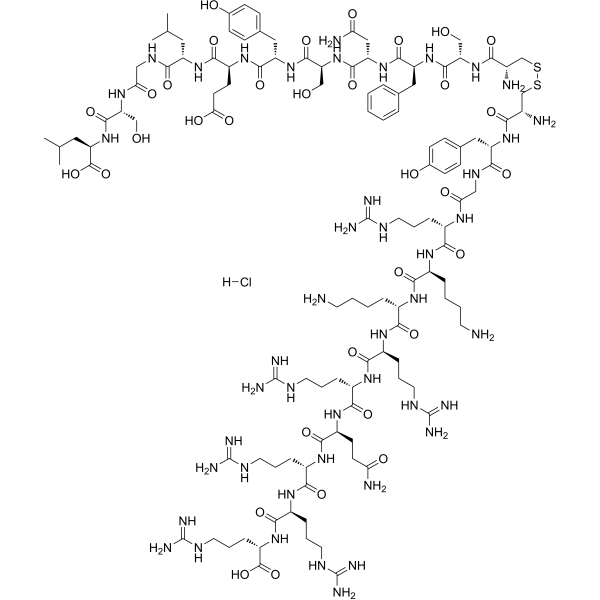
-
- HY-W015061S
-
-
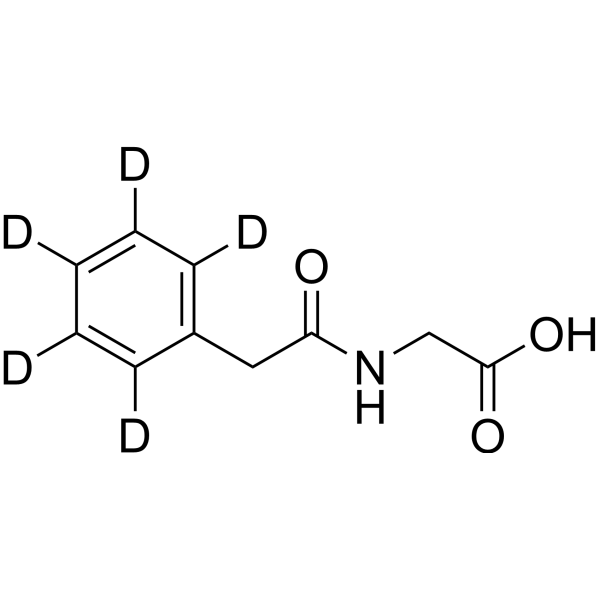
-
- HY-135430
-
|
|
Ferroptosis
|
Inflammation/Immunology
|
|
SRS16-86 is a potent inhibitor of ferroptosis . SRS16-86 is more stable than more stable to metabolism and plasma than Ferrostatin-1 in vivo. SRS16-86 can be used for renal ischemia-reperfusion injury (IRI) and spinal cord injury (SCI) research .
|
-
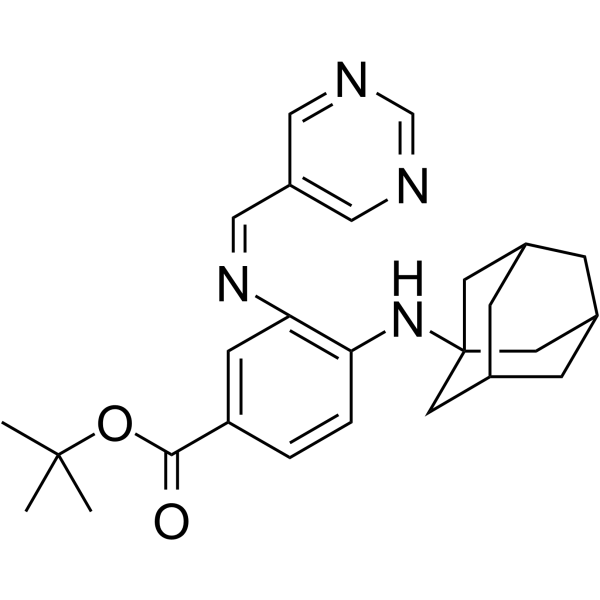
-
- HY-122070
-
|
U 74006F
|
Antibiotic
|
Infection
Neurological Disease
|
|
Tirilazad mesylate (U 74006F) is a nonglucocorticoid, 21-aminosteroid that inhibits lipid peroxidation. Tirilazad mesylate can attenuate brain or spinal cord injury caused by trauma, stroke, ischemia and reperfusion injury. Tirilazad mesylate has antiviral activities against nCoV. Tirilazad mesylate is neuroprotective for ischaemic stroke, can be used for subarachnoid hemorrhage research .
|
-
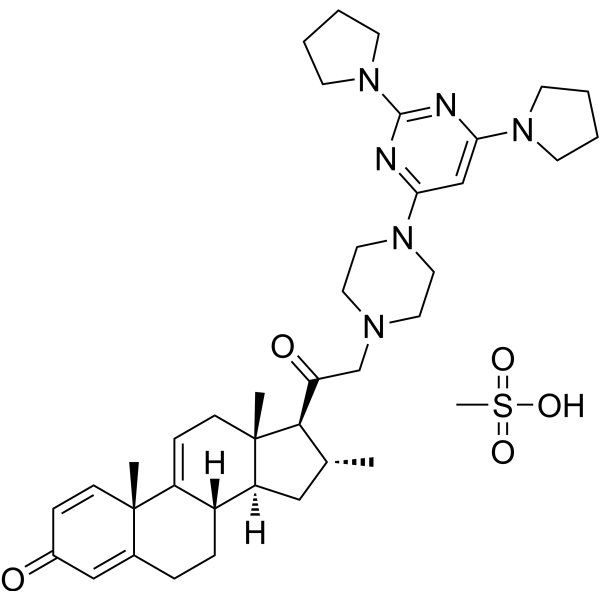
-
- HY-P3199
-
|
|
PKC
|
Inflammation/Immunology
|
|
PKCβII Peptide Inhibitor I is a PKCβII inhibitor. PKCβII Peptide Inhibitor I shows cardioprotective effects in rat cardiac Ischemia/reperfusion injury model. PKCβII Peptide Inhibitor I also prevents vascular endothelial dysfunction .
|
-
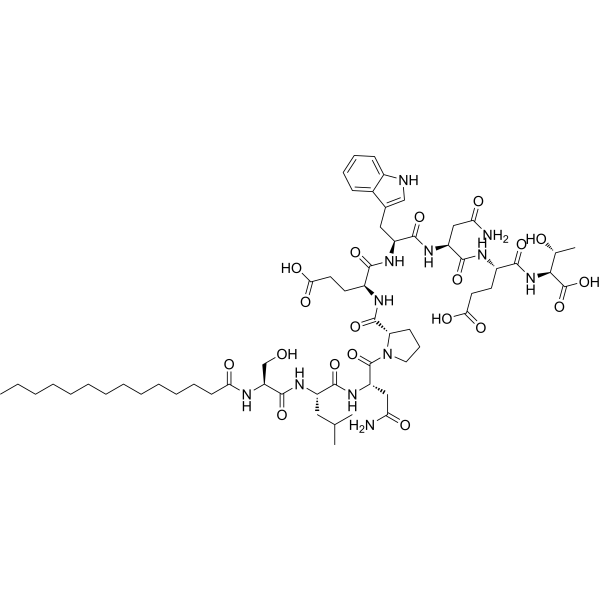
-
- HY-106592A
-
|
PNU74389G (meleate)
|
Others
|
Others
|
|
U-74389G (PNU74389G meleate) is an antioxidant, can inhibit lipid peroxidation reactions. U-74389G can protect against ischemia-reperfusion injury and be widely used in animal models of ischemic injury and hypertension. U-74389G shows anti-inflammatory activity .
|
-
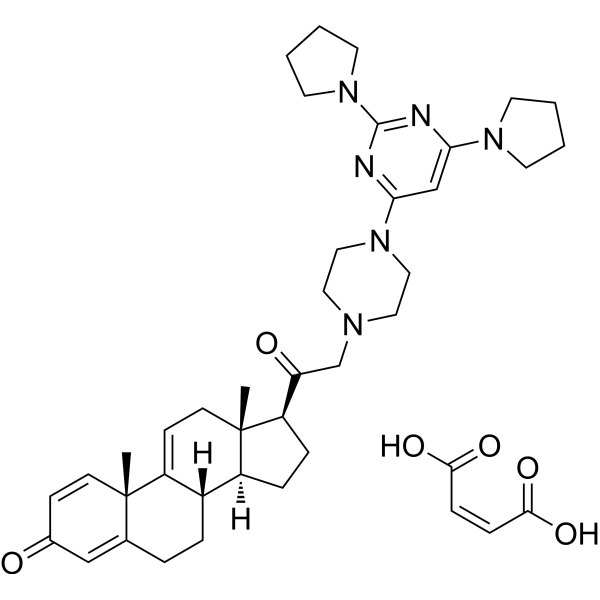
-
- HY-122070A
-
|
U 74006F hydrate
|
Antibiotic
|
Infection
Metabolic Disease
|
|
Tirilazad mesylate hydrate is the hydrate form of Tirilazad mesylate (HY-122070). Tirilazad mesylate is a nonglucocorticoid, 21-aminosteroid that inhibits lipid peroxidation. Tirilazad mesylate can attenuate brain or spinal cord injury caused by trauma, stroke, ischemia and reperfusion injury. Tirilazad mesylate has antiviral activities against nCoV. Tirilazad mesylate is neuroprotective for ischaemic stroke, can be used for subarachnoid hemorrhage research .
|
-
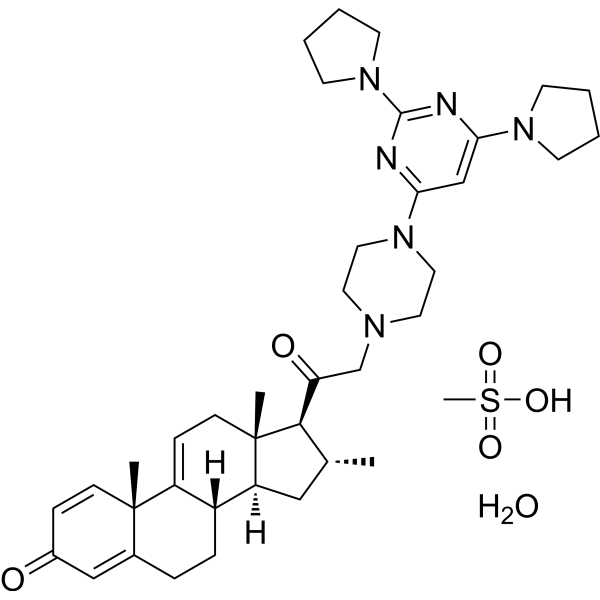
-
- HY-10915
-
|
|
Adenosine Receptor
|
Cardiovascular Disease
|
|
LUF6096, a potent allosteric enhancer of the adenosine A3 receptor, is able to allosterically enhance agonist binding. LUF6096 shows low orthosteric affinity for any of the adenosine receptors. LUF6096 shows protective effects in myocardial ischemia/reperfusion injury .
|
-
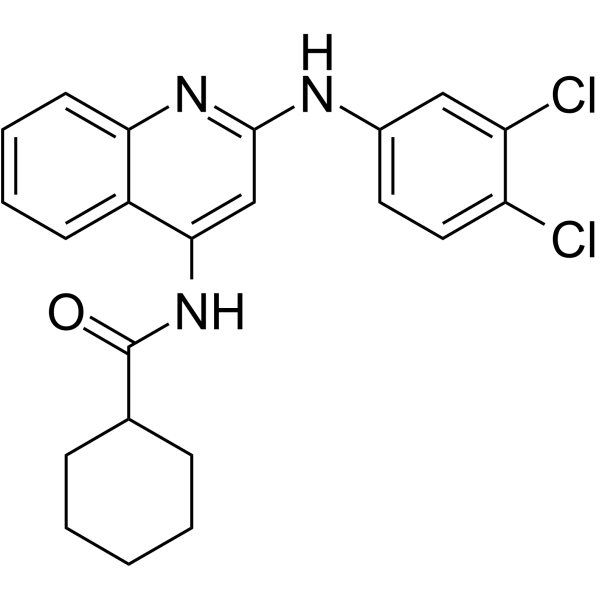
-
- HY-P99886
-
|
h5G1. 1-SC
|
Complement System
Apoptosis
|
Cardiovascular Disease
Neurological Disease
|
|
Pexelizumab (h5G1. 1-SC) is a humanized scFv monoclonal antibody directed against the C5 complement component. Pexelizumab inhibits apoptosis and leukocyte infiltration. Pexelizumab can be used for the research of cerebral IR injury and myocardial infarction .
|
-

-
- HY-111475
-
|
|
Mitochondrial Metabolism
|
Cardiovascular Disease
|
|
Mitochondrial fusion promoter M1 is a mitochondrial dynamic modulator. Mitochondrial fusion promoter M1 preserves the mitochondrial function and promotes cellular respiration. Mitochondrial fusion promoter M1 alleviates cardiac and brain damage in rats with cardiac ischemia/reperfusion injury .
|
-
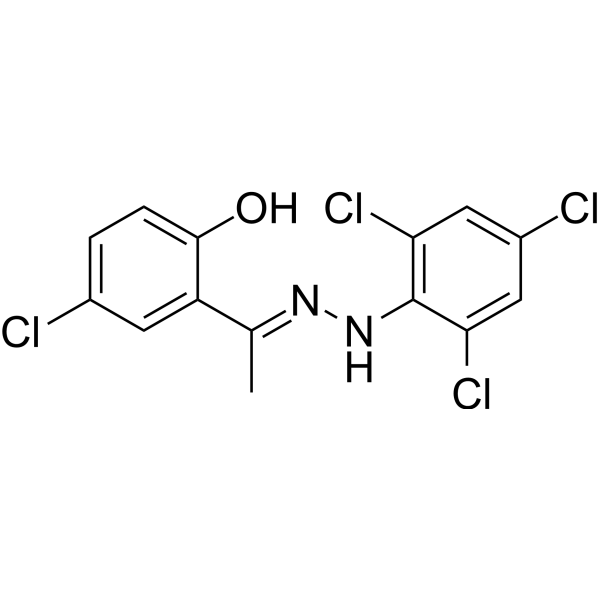
-
- HY-108448
-
|
OLDA
|
TRP Channel
|
Cardiovascular Disease
|
|
N-Oleoyldopamine (OLDA) is a product of condensation of oleic acid and dopamine (DA) and an endogenous TRPV1 selective agonist. N-Oleoyldopamine (OLDA) can crosses the blood-brain barrier. N-oleoyl-dopamine protects the heart against ischemia-reperfusion injury via activation of TRPV1 .
|
-
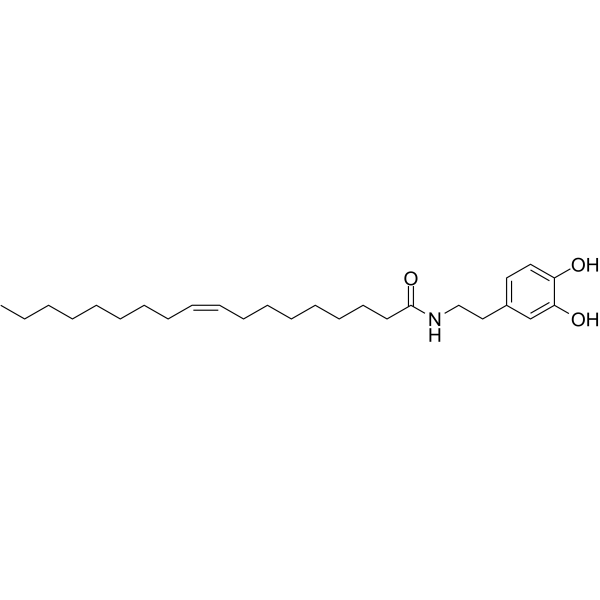
-
- HY-161119
-
|
|
Dynamin
Reactive Oxygen Species
|
Cardiovascular Disease
Cancer
|
|
Drpitor1a is a potent Drp1 inhibitor. Drpitor1a inhibits mitochondrial ROS production, preventes mitochondrial fission, and improves right ventricular diastolic dysfunction during IR (ischemia reperfusion) injury. Drpitor1a has the potential for the research of lung cancer [1]
|
-
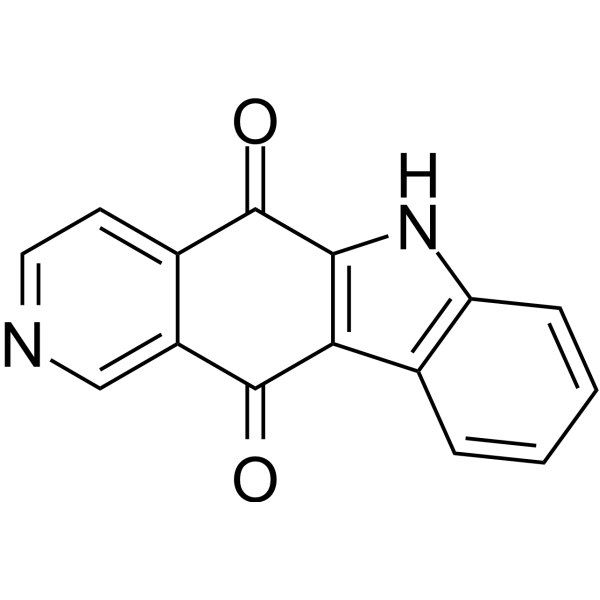
-
- HY-125773
-
|
Beta-cyano-l-alanine
|
Endogenous Metabolite
|
Neurological Disease
|
|
β-cyano-L-Alanine (Beta-cyano-l-alanine), a nitrile of widespread occurrence in higher plants, is enzymatically produced by cyanoalanine synthase from cyanide and cysteine as substrates . β-cyano-L-Alanine abolishes the protective effect of ethanol on cerebral ischemia/reperfusion (I/R) injury .
|
-
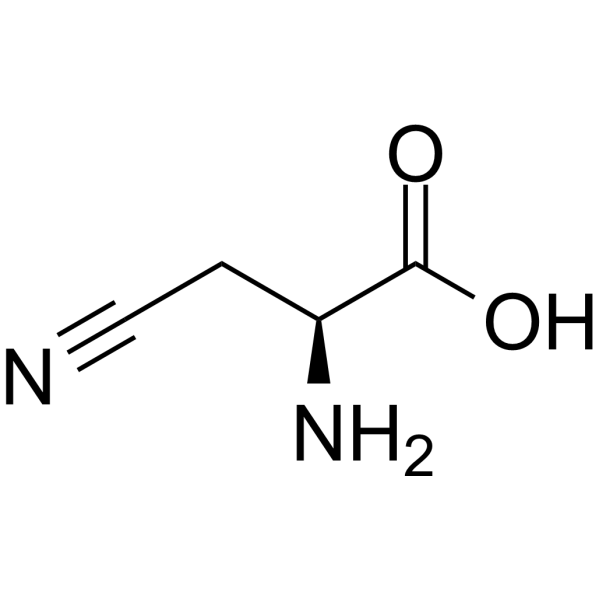
-
- HY-N6996
-
|
|
Autophagy
PI3K
mTOR
Akt
|
Inflammation/Immunology
Cancer
|
|
Methyl Eugenol is a bait that has oral activity against oriental fruit fly (Hendel).Methyl Eugenol has anti-cancer and anti-inflammatory activities. Methyl Eugenol can induce Autophagy in cells. Methyl Eugenol can be used in the study of intestinal ischemia/reperfusion injury .
|
-
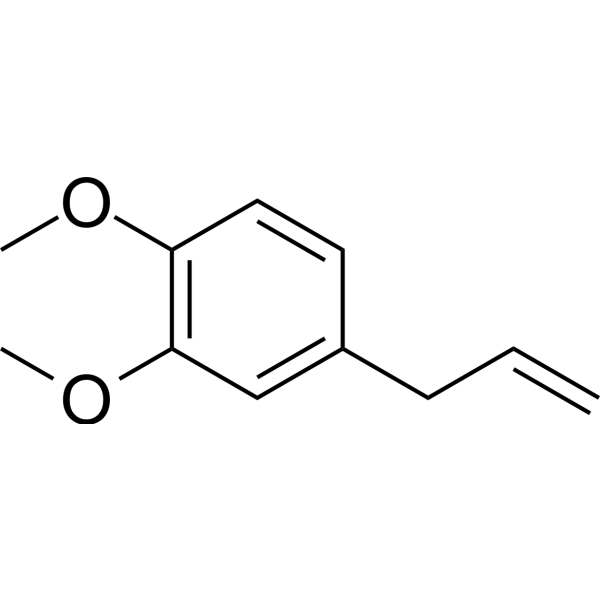
-
- HY-149586
-
|
|
Reactive Oxygen Species
|
Others
|
|
ROS-IN-2 (compound 85) is a seco-lupane triterpenoid derivative. ROS-IN-2 blocks ROS production and protects mitochondria from damage by inhibiting excessive production of oxidative stressors. ROS-IN-2 can be used for myocardial ischemia/reperfusion (MI/R) injury research .
|
-
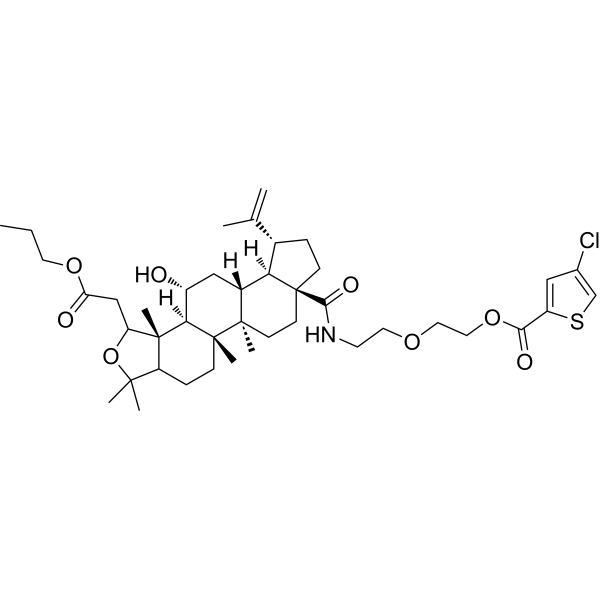
-
- HY-N0349
-
|
Methyl 4-hydroxybenzoate
|
Bacterial
Endogenous Metabolite
|
Infection
Inflammation/Immunology
|
|
Methyl Paraben is a standardized methyl paraben allergen isolated from Yunnan hemlock (Tsuga dumosa). Methyl Paraben is commonly used as a stable, non-volatile preservative. Methyl Paraben increases histamine release and cellular regulation of immunity, blocks sodium channels, and prevents ischemia-reperfusion injury .
|
-
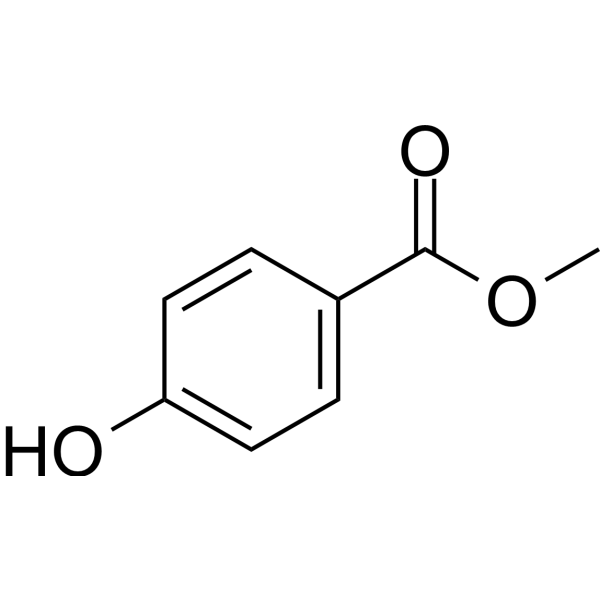
-
- HY-N2638
-
|
|
Apoptosis
|
Cardiovascular Disease
|
|
Ilexsaponin A, isolated from the root of Ilex pubescens, attenuates ischemia-reperfusion-induced myocardial injury through anti-apoptotic pathway. Ilexsaponin A can reduce myocardial infarct size, lower the serum levels of LDH, AST and CK-MB, increase cellular viability and inhibit apoptosis in hypoxia/reoxygenation cardiomyocytes .
|
-
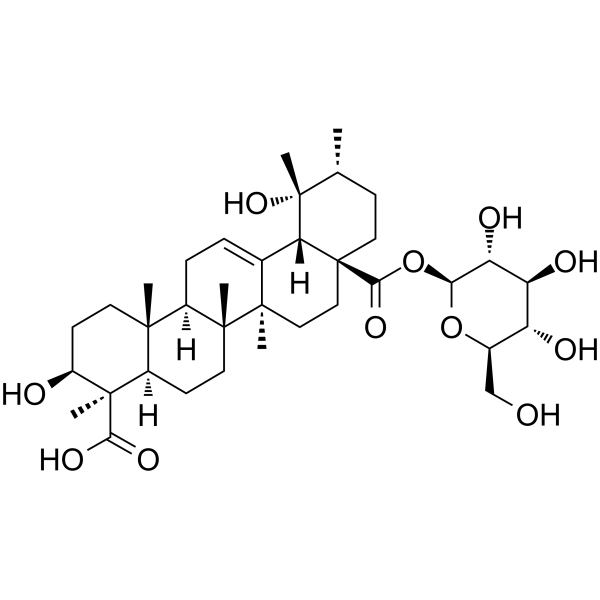
-
- HY-139397
-
TJ-M2010-5
Maximum Cited Publications
8 Publications Verification
|
MyD88
|
Cardiovascular Disease
|
|
TJ-M2010-5 is a MyD88 inhibitor that binds to the TIR domain of MyD88 to interfere with its homodimerization, and the TLR/MyD88 signal pathway . TJ-M2010-5 can be used for the research of myocardial ischemia/reperfusion injury (MIRI) .
|
-
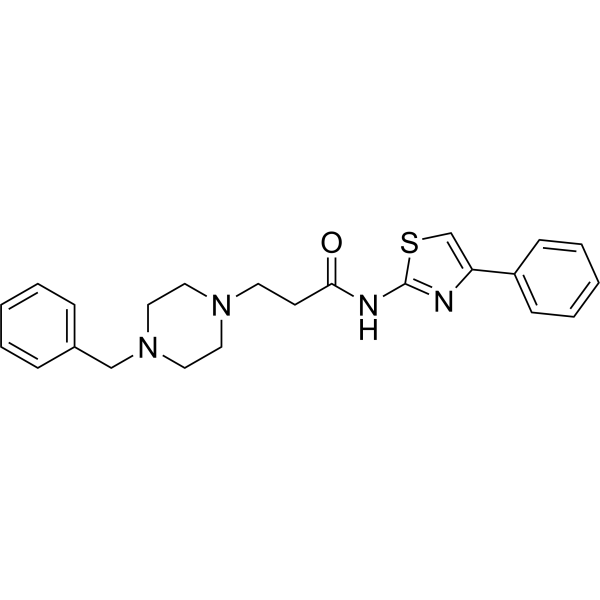
-
- HY-13315
-
|
MK0476
|
Leukotriene Receptor
|
Inflammation/Immunology
|
|
Montelukast sodium (MK0476) is a potent, selective and orally active antagonist of cysteinyl leukotriene receptor 1 (CysLT1). Montelukast sodium can be used for the reseach of asthma and liver injury. Montelukast sodium also has an antioxidant effect in intestinal ischemia-reperfusion injury, and could reduce cardiac damage. Montelukast sodium decreases eosinophil infiltration into the asthmatic airways. Montelukast sodium can also be used for COVID-19 research .
|
-
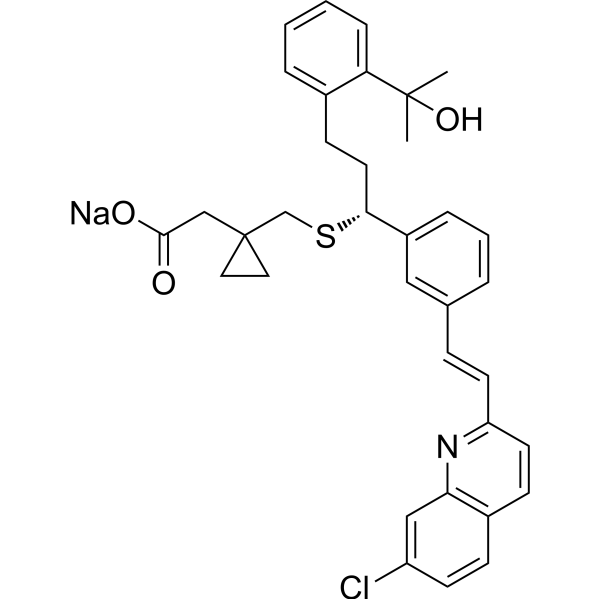
-
- HY-P1098
-
Ac2-26
3 Publications Verification
|
NF-κB
|
Inflammation/Immunology
|
|
Ac2-26, an active N-terminal peptide of annexin A1 (AnxA1), attenuates ischemia-reperfusion-induced acute lung injury. Ac2-26 also decreases AnxA1 protein expression, inhibits the activation of NF-κB and MAPK pathways in the injured lung tissue .
|
-
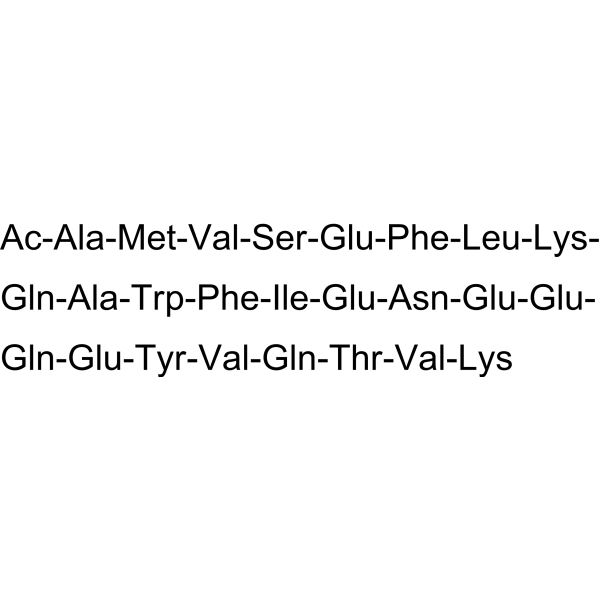
-
- HY-P1098A
-
|
|
NF-κB
|
Inflammation/Immunology
|
|
Ac2-26 TFA, an active N-terminal peptide of annexin A1 (AnxA1), attenuates ischemia-reperfusion-induced acute lung injury. Ac2-26 also decreases AnxA1 protein expression, inhibits the activation of NF-κB and MAPK pathways in the injured lung tissue .
|
-

-
- HY-N0745
-
|
|
Caspase
|
Inflammation/Immunology
|
|
Senkyunolide I, isolated from Ligusticum chuanxiong Hort, is an anti-migraine compound. Senkyunolide I protects rat brain against focal cerebral ischemia-reperfusion injury by up-regulating p-Erk1/2, Nrf2/HO-1 and inhibiting caspase 3 .
|
-
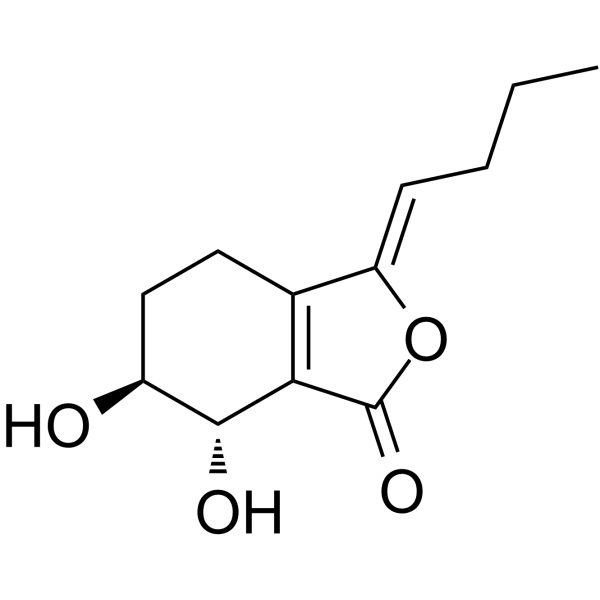
-
- HY-119152
-
|
|
Insulin Receptor
Tyrosinase
Akt
|
Others
|
|
CMX-2043 is a novel analogue of α-Lipoic Acid (HY-N0492). CMX-2043 is effective in antioxidant effect, activation of insulin receptor kinase, soluble tyrosine kinase, and Akt phosphorylation. CMX-2043 shows protection against ischemia-reperfusion injury (IRI) in rat model .
|
-
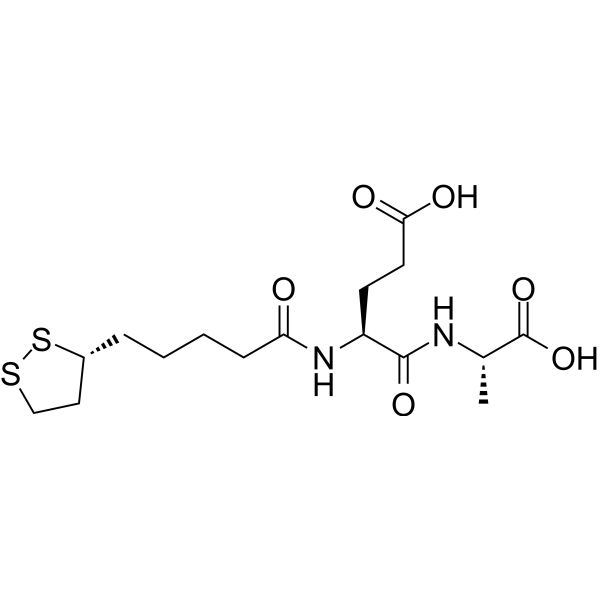
-
- HY-117356B
-
|
|
P2Y Receptor
NF-κB
ERK
|
Cardiovascular Disease
|
|
MRS2693 trisodium is a selective P2Y6 agonist with an EC50 value of 0.015 μM. MRS2693 trisodium can reduce the activation of NF-kappaB and activate the ERK1/2 pathway, and has a cytoprotective effect on mouse hindlimb skeletal muscle ischemia-reperfusion injury model .
|
-
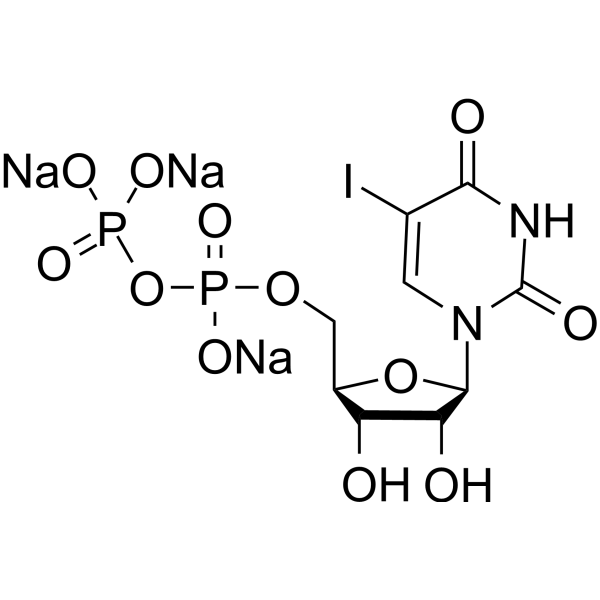
-
- HY-13315A
-
|
MK0476 free base
|
Leukotriene Receptor
|
Inflammation/Immunology
|
|
Montelukast (MK0476 free base) is a potent, selective and orally active antagonist of cysteinyl leukotriene receptor 1 (CysLT1). Montelukast can be used for the reseach of asthma and liver injury. Montelukast also has an antioxidant effect in intestinal ischemia-reperfusion injury, and could reduce cardiac damage. Montelukast decreases eosinophil infiltration into the asthmatic airways. Montelukast can also be used for COVID-19 research .
|
-
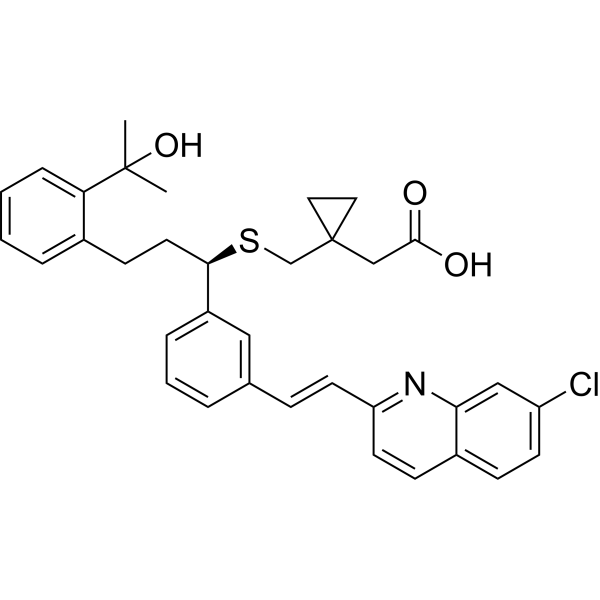
-
- HY-13315B
-
|
MK0476 dicyclohexylamine
|
Leukotriene Receptor
|
Inflammation/Immunology
|
|
Montelukast (MK0476) dicyclohexylamine is a potent, selective and orally active antagonist of cysteinyl leukotriene receptor 1 (CysLT1). Montelukast dicyclohexylamine can be used for the reseach of asthma and liver injury. Montelukast dicyclohexylamine also has an antioxidant effect in intestinal ischemia-reperfusion injury, and could reduce cardiac damage. Montelukast dicyclohexylamine decreases eosinophil infiltration into the asthmatic airways. Montelukast dicyclohexylamine can also be used for COVID-19 research .
|
-
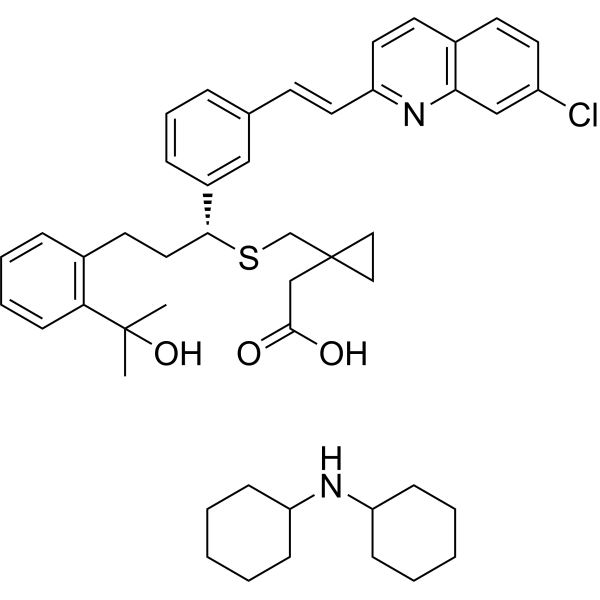
-
- HY-18754
-
|
|
p38 MAPK
Autophagy
|
Endocrinology
|
|
FR 167653 free base, an orally active and selective p38 MAPK inhibitor, is a potent suppressor of TNF-α and IL-1β production via specific inhibition of p38 MAPK activity. FR 167653 free base is effective in treating inflammation, relieving trauma and ischemia-reperfusion injury in vivo .
|
-
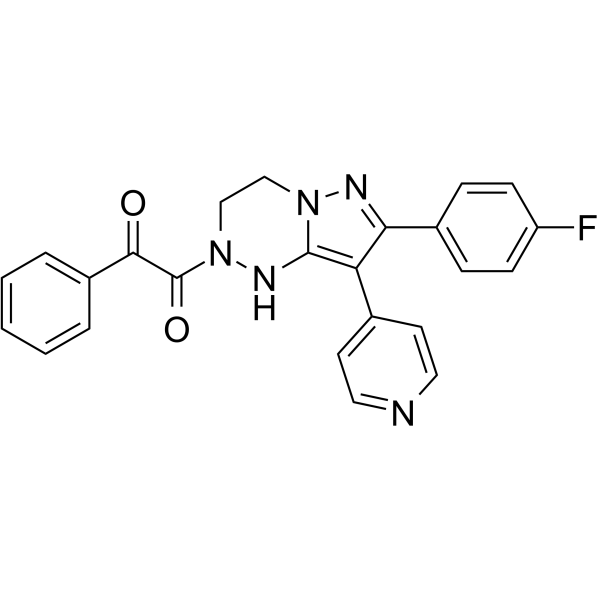
-
- HY-103445
-
|
|
Elastase
|
Cardiovascular Disease
|
|
SSR69071 is a potent, orally active and selective inhibitor of neutrophil elastase. SSR69071 reduces myocardial infarct size following ischemia-reperfusion injury . SSR69071 displays a higher affinity for human elastase (Ki=0.0168 nM) than for rat (Ki=3 nM), mouse (Ki=1.8 nM), and rabbit (Ki= 58 nM) elastases .
|
-
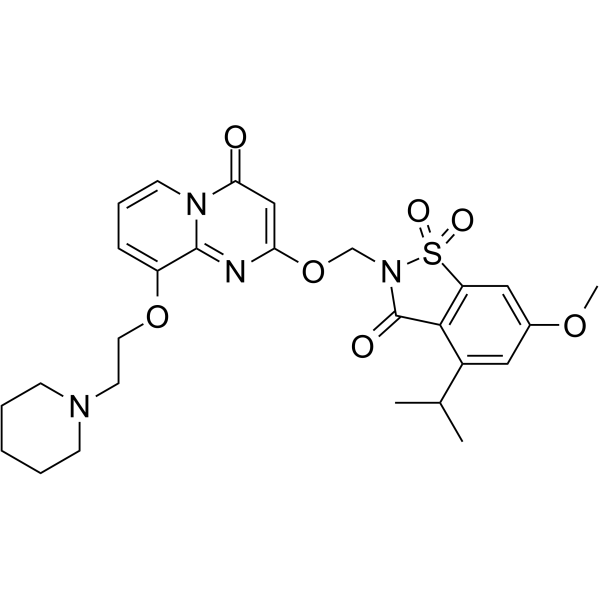
-
- HY-118530
-
|
SA96; Thiobutarit
|
VEGFR
|
Cardiovascular Disease
Inflammation/Immunology
|
|
Bucillamine (SA96) is an orally active and potent sulfhydryl donor and antioxidant. Bucillamine is also an antirheumatic agent with antiangiogenic properties. Bucillamine can protect against Ischemia/reperfusion (I/R) injury in high-risk organ transplants. Bucillamine inhibits the production of VEGF. Bucillamine can be used for the research of choroidal neovascularization (CNV) and rheumatoid arthritis (RA) .
|
-
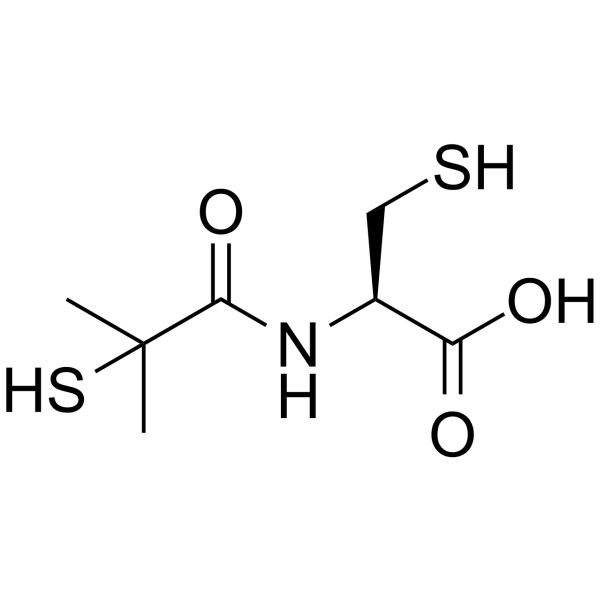
-
- HY-18754A
-
|
FR 167653 sulfate
|
p38 MAPK
Autophagy
|
Endocrinology
|
|
FR 167653 (FR 167653 sulfate), an orally active and selective p38 MAPK inhibitor, is a potent suppressor of TNF-α and IL-1β production via specific inhibition of p38 MAPK activity. FR 167653 (FR 167653 sulfate) is effective in treating inflammation, relieving trauma and ischemia-reperfusion injury in vivo .
|
-
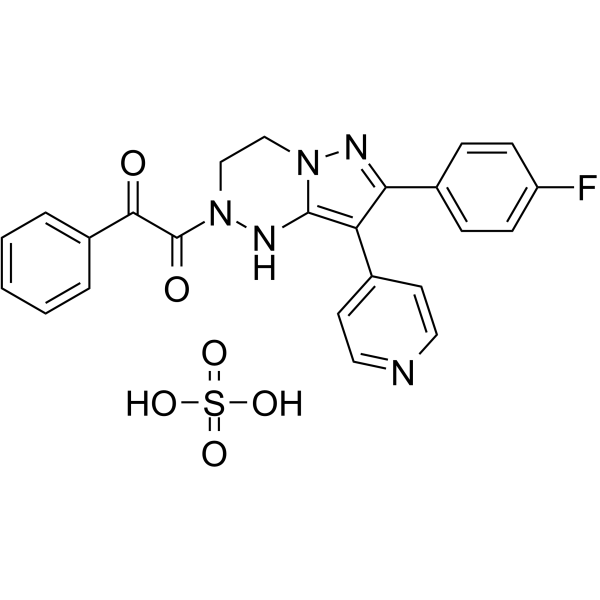
-
- HY-13315R
-
|
MK0476 (Standard)
|
Leukotriene Receptor
|
Inflammation/Immunology
|
|
Montelukast (sodium) (Standard) is the analytical standard of Montelukast (sodium). This product is intended for research and analytical applications. Montelukast sodium (MK0476) is a potent, selective and orally active antagonist of cysteinyl leukotriene receptor 1 (CysLT1). Montelukast sodium can be used for the reseach of asthma and liver injury. Montelukast sodium also has an antioxidant effect in intestinal ischemia-reperfusion injury, and could reduce cardiac damage. Montelukast sodium decreases eosinophil infiltration into the asthmatic airways. Montelukast sodium can also be used for COVID-19 research .
|
-
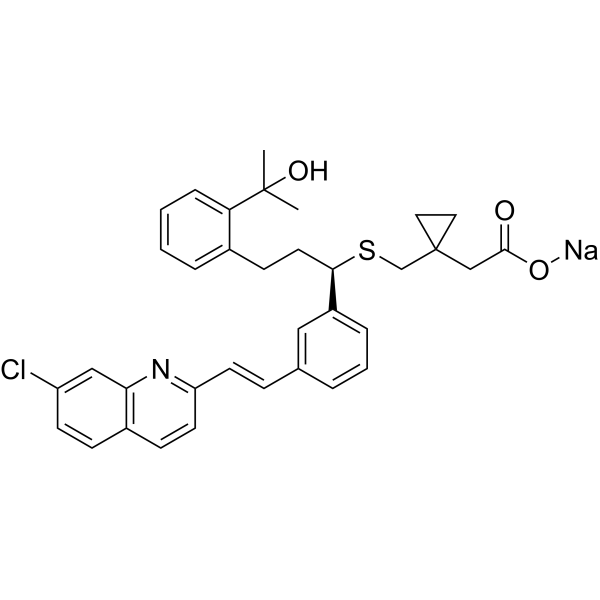
-
- HY-17369
-
|
L700462 hydrochloride monohydrate; MK383 hydrochloride monohydrate
|
Integrin
|
Cardiovascular Disease
|
|
Tirofiban (L700462) hydrochloride monohydrate is a selective and reversible platelet integrin receptor (Gp IIb/IIIa) antagonist that inhibits fibrinogen binding to this receptor and has antithrombotic activity. Tirofiban hydrochloride monohydrate induces proliferation and migration on endothelial cell by inducing production of VEGF. Tirofiban hydrochloride monohydrate can significantly reduces myocardial no-reflow and ischemia-reperfusion injury by alleviating myocardial microvascular structural and endothelial dysfunction in the ischemic area .
|
-
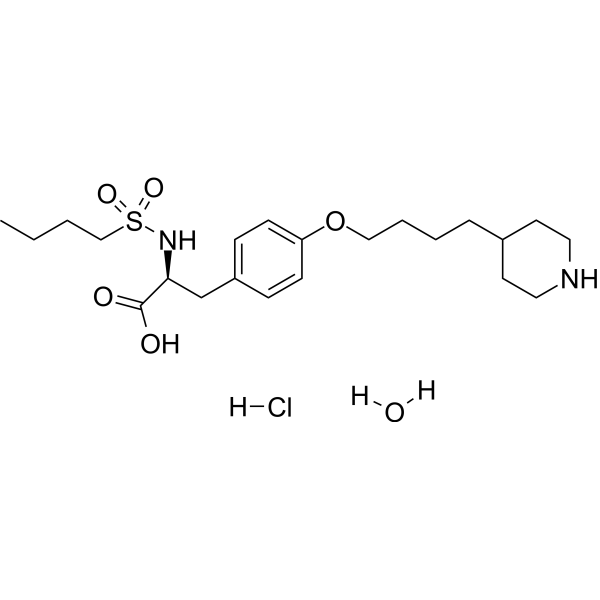
- HY-17369B
-
|
L700462; MK383
|
Integrin
|
Cardiovascular Disease
|
|
Tirofiban (L700462) is a selective and reversible platelet integrin receptor (Gp IIb/IIIa) antagonist that inhibits fibrinogen binding to this receptor and has antithrombotic activity. Tirofiban induces proliferation and migration on endothelial cell by inducing production of VEGF. Tirofiban can significantly reduces myocardial no-reflow and ischemia-reperfusion injury by alleviating myocardial microvascular structural and endothelial dysfunction in the ischemic area .
|
-
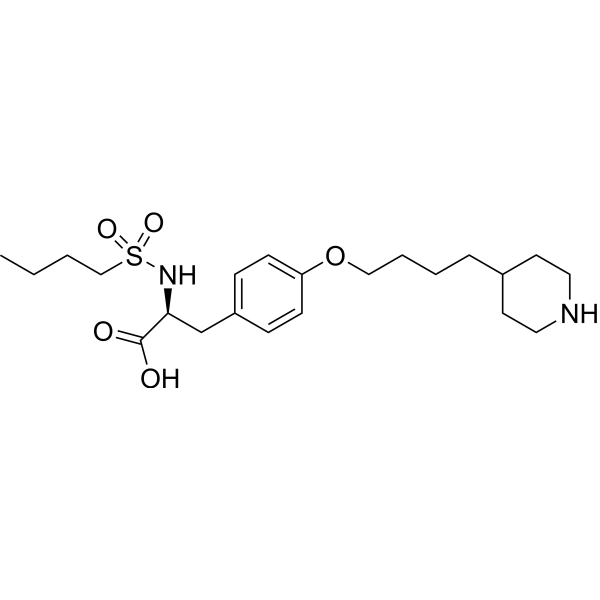
- HY-18100A
-
|
|
Sigma Receptor
Akt
NO Synthase
|
Cardiovascular Disease
Neurological Disease
|
|
PRE-084 hydrochloride is a highly selective σ1 receptor (S1R) agonist, with an IC50 of 44 nM. PRE-084 hydrochloride exhibits good neuroprotective effects, can improve motor function and motor neuron survival in mice. PRE-084 hydrochloride also can ameliorate myocardial ischemia-reperfusion injury in rats by activating the Akt-eNOS pathway .
|
-
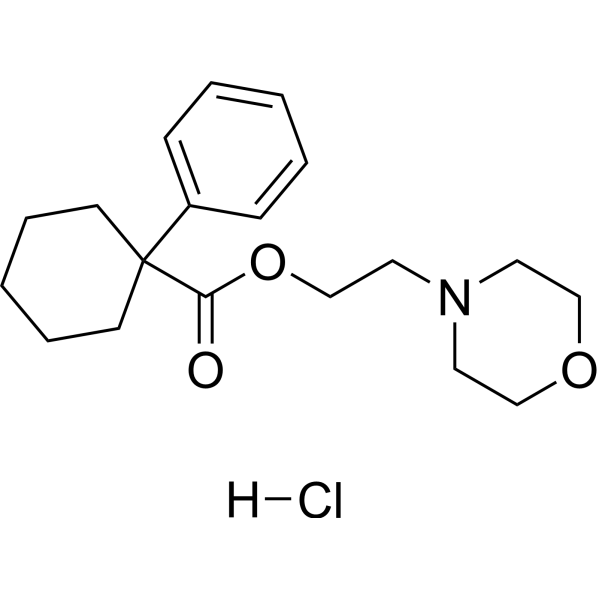
- HY-17369A
-
|
L700462 hydrochloride; MK383 hydrochloride
|
Integrin
|
Cardiovascular Disease
|
|
Tirofiban (L700462) hydrochloride is a selective and reversible platelet integrin receptor (Gp IIb/IIIa) antagonist that inhibits fibrinogen binding to this receptor and has antithrombotic activity. Tirofiban hydrochloride induces proliferation and migration on endothelial cell by inducing production of VEGF. Tirofiban hydrochloride can significantly reduces myocardial no-reflow and ischemia-reperfusion injury by alleviating myocardial microvascular structural and endothelial dysfunction in the ischemic area .
|
-
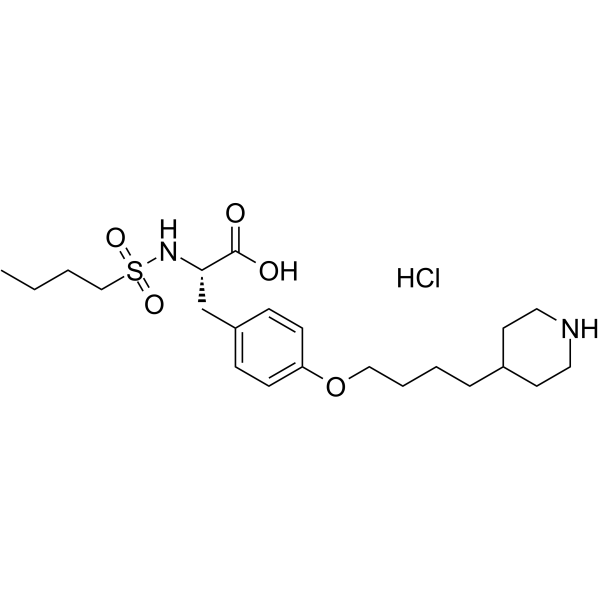
- HY-106275
-
|
Fibrin-derived peptide Bβ15-42
|
Flavivirus
Dengue virus
|
Cardiovascular Disease
|
|
FX-06 (Fibrin-derived peptide Bβ15-42) is a fibrin Bbeta chain-derived peptide. FX-06 binds to VE-cadherin and inhibits leukocyte transmigration and initiates VE-cadherin-mediated signaling. FX-06 can be used in the research of ischemia/reperfusion injury, Dengue shock syndrome (DSS) .
|
-

- HY-18100
-
|
|
Sigma Receptor
Akt
NO Synthase
|
Cardiovascular Disease
Neurological Disease
|
|
PRE-084 is a highly selective σ1 receptor (S1R) agonist, with an IC50 of 44 nM. PRE-084 exhibits good neuroprotective effects, can improve motor function and motor neuron survival in mice. PRE-084 also can ameliorate myocardial ischemia-reperfusion injury in rats by activating the Akt-eNOS pathway .
|
-
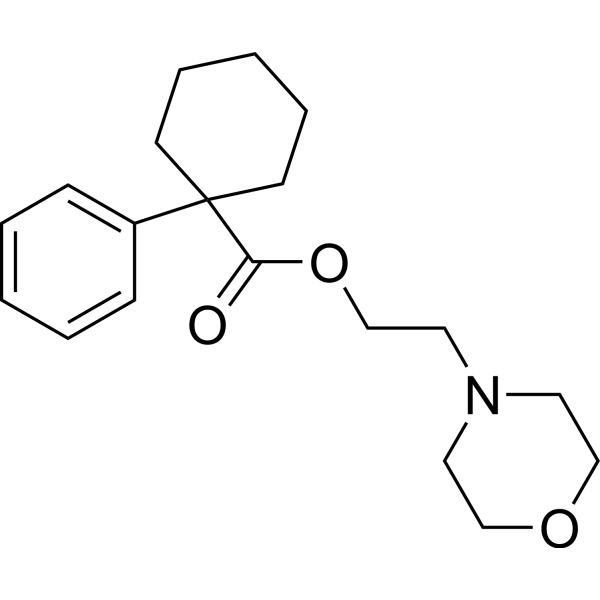
- HY-P1556
-
|
|
PKG
|
Cardiovascular Disease
|
|
Vasonatrin Peptide (VNP) is a chimera of atrial natriuretic peptide (ANP) and C-type natriuretic peptide (CNP). Vasonatrin peptide possesses the venodilating actions of CNP, the natriuretic actions of ANP, and unique arterial vasodilating actions not associated with either ANP or CNP. Vasonatrin Peptide protects the diabetic heart against ischemia-reperfusion injury by inhibiting ER stress via the cGMP-PKG signaling pathway .
|
-
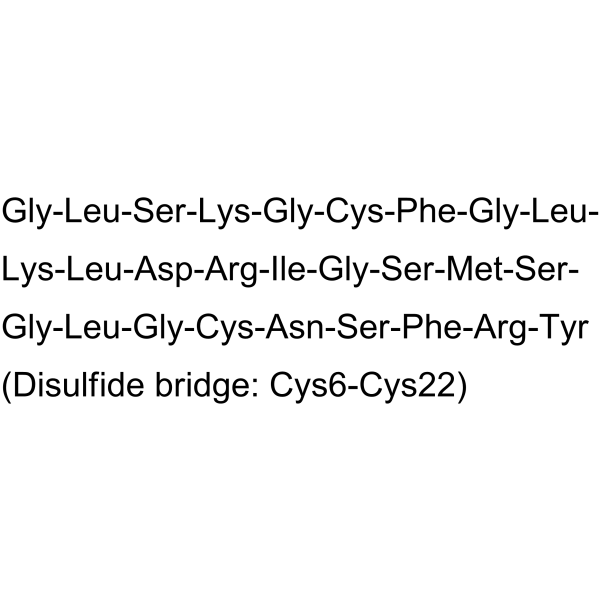
- HY-152086
-
|
|
Dynamin
|
Cardiovascular Disease
|
|
DRP1i27 is a potent inhibitor of human Drp1 (dynamin-related protein 1). DRP1i27 binds to the GTPase site of Drp1, with hydrogen bonds to Gln34 and Asp218. DRP1i27 targets Drp1-mediated mitochondrial fission in cell line models and protects against simulated ischemia-reperfusion injury .
|
-
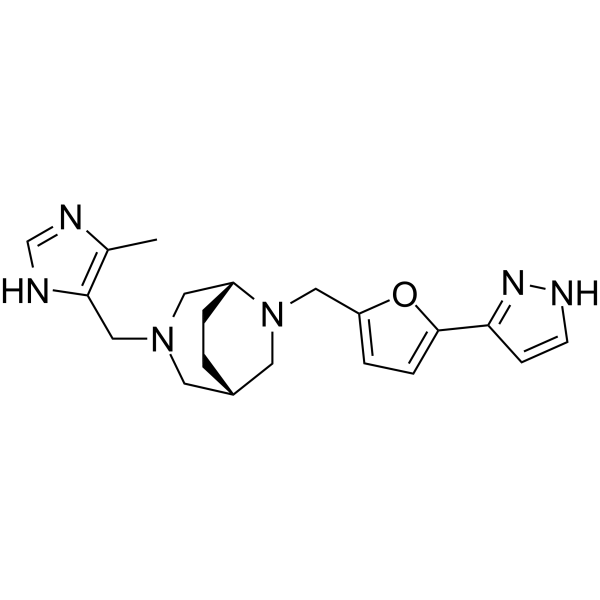
- HY-152086A
-
|
|
Dynamin
|
Cardiovascular Disease
|
|
DRP1i27 dihydrochloride is a potent inhibitor of human Drp1 (dynamin-related protein 1). DRP1i27 dihydrochloride binds to the GTPase site of Drp1, with hydrogen bonds to Gln34 and Asp218. DRP1i27 dihydrochloride targets Drp1-mediated mitochondrial fission in cell line models and protects against simulated ischemia-reperfusion injury .
|
-
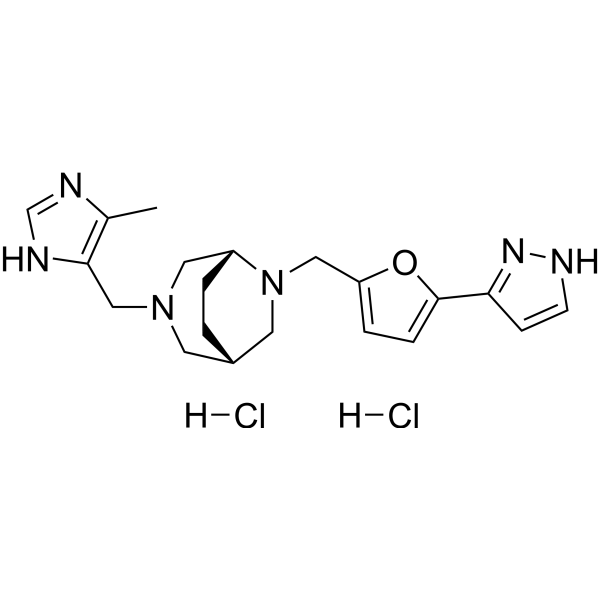
- HY-108467
-
GGsTop
2 Publications Verification
Nahlsgen
|
Others
|
Cardiovascular Disease
|
|
GGsTop (Nahlsgen) is a potent, non-toxic, highly selective and irreversible γ−glutamyl transpeptidase (GGT) inhibitor, with a Ki of 170 μM for Human GGT. GGsTop shows a pKa of 9.71, also exhibits Kons of 150±10 and 51±3 M -1 s -1 against E.coli GGT and human GGT, respectively . GGsTop protects hepatic ischemia-reperfusion injury in rat model .
|
-
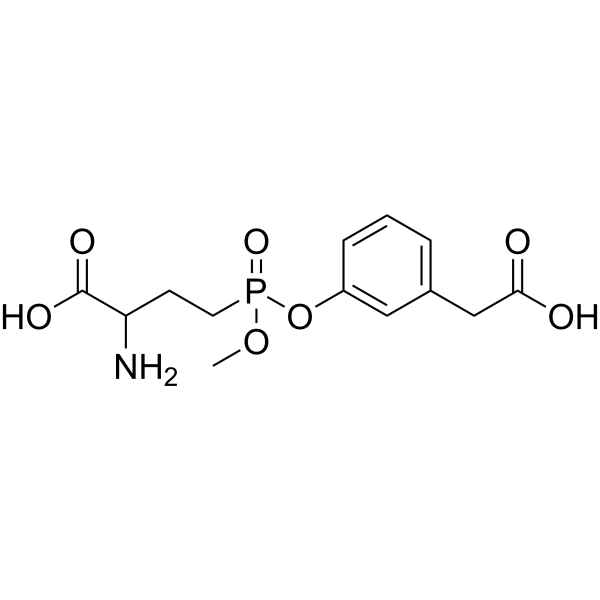
- HY-P1556A
-
|
|
PKG
|
Metabolic Disease
|
|
Vasonatrin Peptide (VNP) TFA is a chimera of atrial natriuretic peptide (ANP) and C-type natriuretic peptide (CNP). Vasonatrin peptide TFA possesses the venodilating actions of CNP, the natriuretic actions of ANP, and unique arterial vasodilating actions not associated with either ANP or CNP. Vasonatrin Peptide TFA protects the diabetic heart against ischemia-reperfusion injury by inhibiting ER stress via the cGMP-PKG signaling pathway .
|
-

- HY-151369
-
|
|
RIP kinase
|
Cardiovascular Disease
Neurological Disease
Metabolic Disease
Inflammation/Immunology
|
|
AV123 (compound 12) is a non-cytotoxic RIPK1 inhibitor (IC50=12.12 µM). AV123 blocks the TNF-α-induced necroptotic (EC50=1.7 μM) but not the apoptotic cell death. AV123 can be used in the study of necrotic chronic conditions such as ischemia-reperfusion injury of the brain, heart and kidney, inflammatory diseases, neurodegenerative diseases and infectious diseases .
|
-
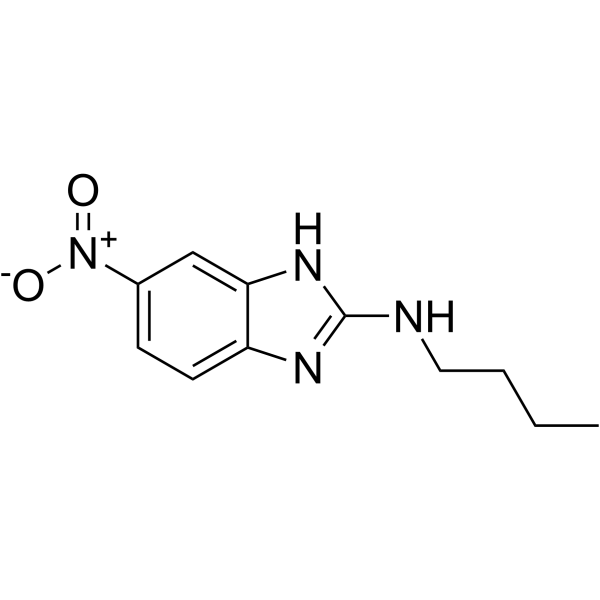
- HY-N0615
-
|
Sanchinoside R1; Sanqi glucoside R1
|
Amyloid-β
Apoptosis
|
Others
|
|
Notoginsenoside R1 (Sanchinoside R1), a saponin, is isolated from P. notoginseng. Notoginsenoside R1 exhibits anti-oxidation, anti-inflammatory, anti-angiogenic, and anti-apoptosis activities. Notoginsenoside R1 provides cardioprotection against ischemia/reperfusion (I/R) injury. Notoginsenoside R1 also provides neuroprotection in H2O2-induced oxidative damage in PC12 cells .
|
-
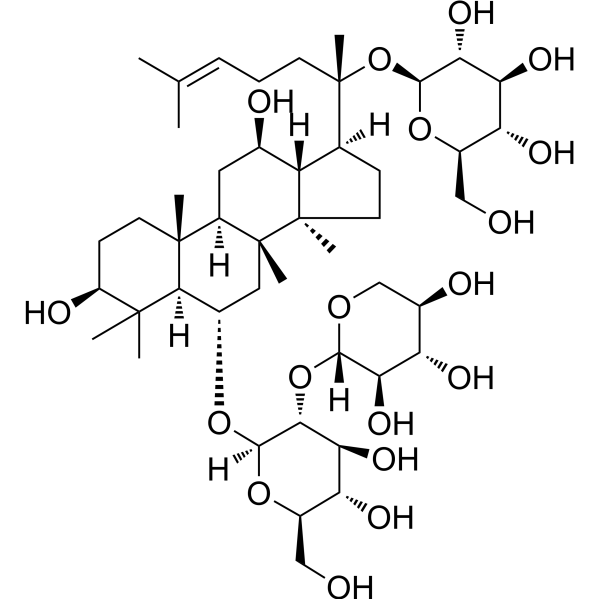
- HY-P5754B
-
|
|
Apoptosis
|
Neurological Disease
|
|
TAT-NEP1-40 acetate is a therapeutic candidate for axonal regeneration and functional recovery after stroke. TAT-NEP1-40 acetate can protect PC12 cells against oxygen and glucose deprivation (OGD) and promote neurite outgrowth. TAT-NEP1-40 acetate protects the brain against ischemia/reperfusion injury through inhibition of neuronal apoptosis. TAT-NEP1-40 acetate can be efficiently delivered into the rat brains .
|
-

- HY-P1098B
-
|
|
IKK
|
Inflammation/Immunology
|
|
Ac2-26 ammonium is the N-terminal peptide of annexin 1, and has anti-inflammatory activity. Ac2-26 ammonium induces a decrease in IKKβ protein in lysosomes by chaperone-mediated autophagy (CMA). Ac2-26 ammonium ameliorates lung ischemia-reperfusion injury. Ac2-26 ammonium also inhibits airway inflammation and hyperresponsiveness in an asthma rat model .
|
-

- HY-138454
-
|
Mercaptoethylguanidine hemisulfate
|
NO Synthase
|
Inflammation/Immunology
|
|
MEG (Mercaptoethylguanidine) hemisulfate is a potent and selective inhibitor of the inducible NO synthase (iNOS), with EC50s of 11.5, 110, and 60 μM for iNOS, ecNOS, and bNOS respectively in tissue homogenates. MEG hemisulfate is also a potent scavenger of peroxynitrite and inhibits peroxynitrite-induced oxidative processes. MEG hemisulfate has a protective effect in many experimental models of inflammation, including ischemia/reperfusion injury, periodontitis, hemorrhagic shock, inflammatory bowel disease, and endotoxic and septic shock .
|
-
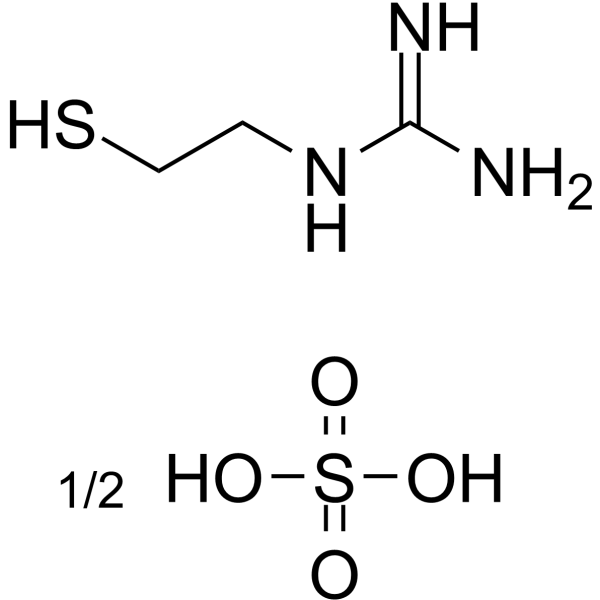
- HY-P5762A
-
|
PNX-14 TFA
|
GnRH Receptor
|
Cardiovascular Disease
Neurological Disease
Metabolic Disease
Inflammation/Immunology
|
|
Phoenixin-14 (PNX-14) TFA, a BBB-penatrable neuropeptide, has anxiolytic, cardioprotective and neuroprotective effect. Phoenixin-14 TFA can regulate pituitary gonadotrophin secretion by upregulating the GnRH receptor mRNA. Phoenixin-14 TFA stimulates insulin secretion. Phoenixin-14 TFA also protects mice from ischemia/reperfusion (IR) injury. PNX-14 TFA prevents oxidative stress by reducing ROS and increasing GSH .
|
-
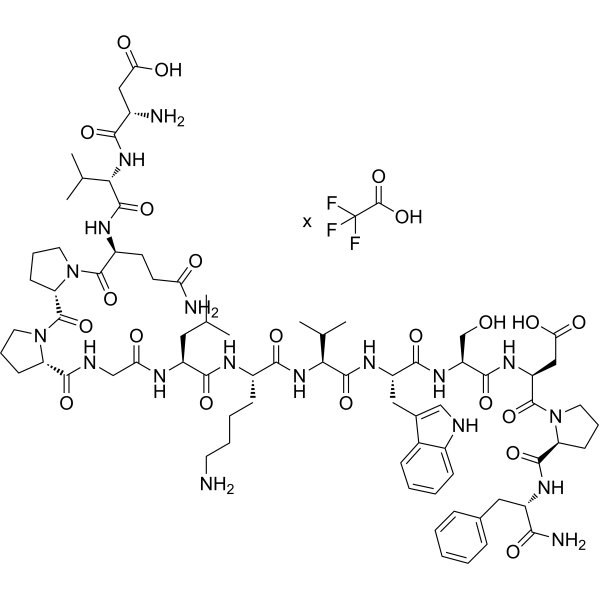
- HY-111754
-
|
|
MAP4K
|
Cardiovascular Disease
|
|
DMX-5804 is a potent, orally active and selective MAP4K4 inhibitor, with an IC50 of 3 nM, a pIC50 of 8.55 for human MAP4K4, less potent on MINK1/MAP4K6 (pIC50, 8.18), and TNIK/MAP4K7 (pIC50, 7.96). DMX-5804 enhances cardiomyocyte survival, and reduces ischemia-reperfusion injury in mice .
|
-
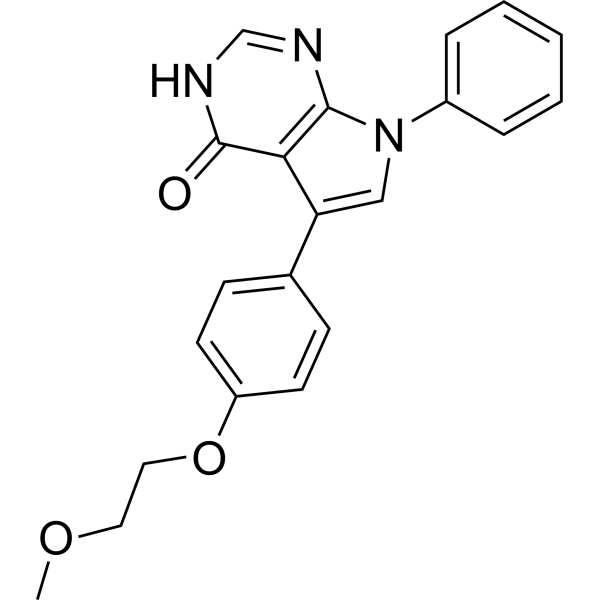
- HY-18071
-
BI-9627
1 Publications Verification
|
Na+/H+ Exchanger (NHE)
|
Cardiovascular Disease
|
|
BI-9627 is potent sodium-hydrogen exchanger isoform 1 (NHE1) inhibitor, with IC50s of 6 and 31 nM in intracellular pH recovery (pHi) and human platelet swelling assays, respectively. BI-9627 displays >30-fold selectivity against NHE2 and with no measurable inhibitory activity against the NHE3 isoform. BI-9627 shows low DDI (agent-agent interaction) potential, excellent pharmacokinetics in rat and dog, and remarkably potent activity in the isolated heart model of ischemia-reperfusion injury .
|
-
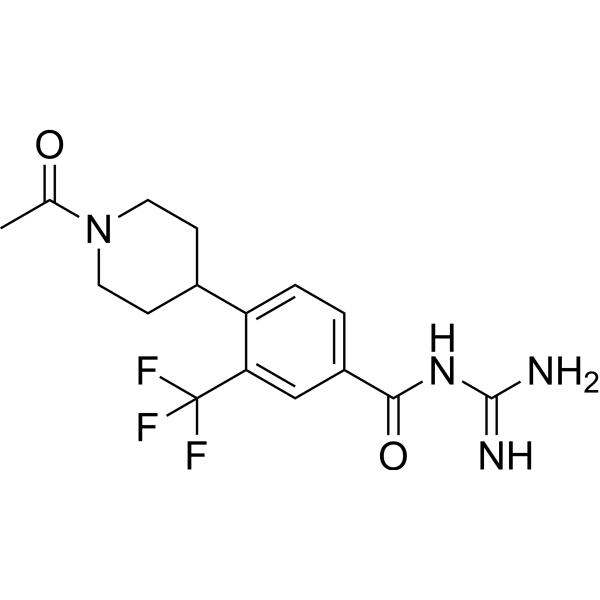
- HY-N0408
-
|
|
NF-κB
Reactive Oxygen Species
Apoptosis
Influenza Virus
|
Infection
Neurological Disease
Inflammation/Immunology
Cancer
|
|
Picroside II, an iridoid compound extracted from Picrorhiza, exhibits anti-inflammatory and anti-apoptotic activities.
picroside II alleviates the inflammatory response in sepsis and enhances immune function by inhibiting the activation of NLRP3 inflammasome and NF-κB pathways .
Picroside II is an antioxidant, exhibits a significant neuroprotective effect through reducing ROS production and protects the blood-brain barrier (BBB) after cerebral ischemia-reperfusion (CI/R) injury. Picroside II has antioxidant, anti-inflammatory, immune regulatory, anti-virus and other pharmacological activities .
|
-
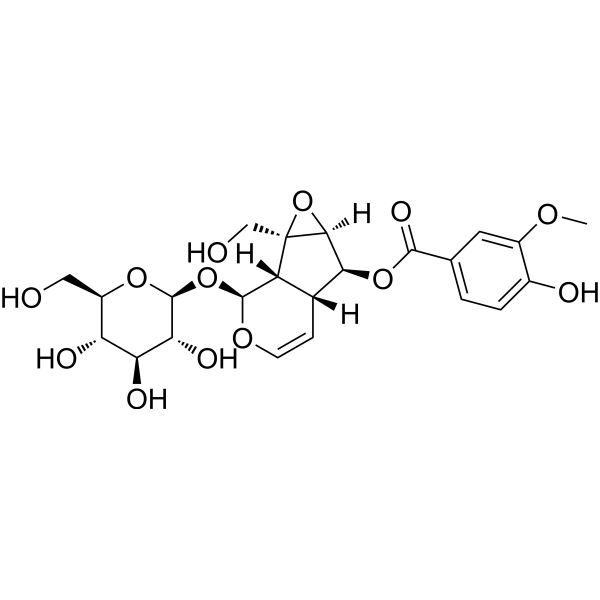
- HY-14994
-
|
|
Protease Activated Receptor (PAR)
Apoptosis
|
Cardiovascular Disease
|
|
SCH79797 dihydrochloride is a highly potent, selective nonpeptide protease activated receptor 1 (PAR1) antagonist. SCH79797 dihydrochloride inhibits binding of a high-affinity thrombin receptor-activating peptide to PAR1 with an IC50 of 70 nM and a Ki of 35 nM. SCH79797 dihydrochloride inhibits thrombin-induced platelet aggregation with an IC50 of 3 μM. SCH79797 dihydrochloride has antiproliferative and pro-apoptotic effects, and limits myocardial ischemia/reperfusion injury in rat hearts. SCH79797 dihydrochloride also potently prevents PAR1 activation in vascular smooth muscle cells, endothelial cells, and astrocytes .
|
-
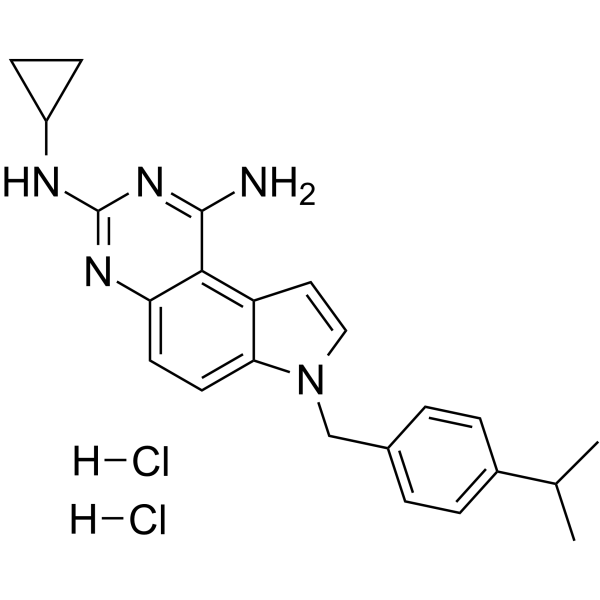
- HY-18071A
-
|
|
Na+/H+ Exchanger (NHE)
|
Cardiovascular Disease
|
|
BI-9627 hydrochloride is potent sodium-hydrogen exchanger isoform 1 (NHE1) inhibitor, with IC50s of 6 and 31 nM in intracellular pH recovery (pHi) and human platelet swelling assays, respectively. BI-9627 hydrochloride displays >30-fold selectivity against NHE2 and with no measurable inhibitory activity against the NHE3 isoform. BI-9627 hydrochloride shows low DDI (agent-agent interaction) potential, excellent pharmacokinetics in rat and dog, and remarkably potent activity in the isolated heart model of ischemia-reperfusion injury .
|
-
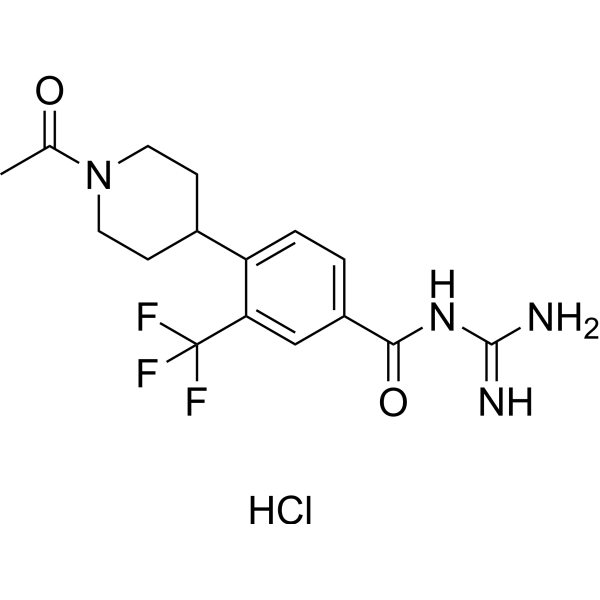
- HY-14993
-
|
|
Protease Activated Receptor (PAR)
Apoptosis
|
Cardiovascular Disease
|
|
SCH79797 is a highly potent, selective nonpeptide protease activated receptor 1 (PAR1) antagonist. SCH79797 inhibits binding of a high-affinity thrombin receptor-activating peptide to PAR1 with an IC50 of 70 nM and a Ki of 35 nM. SCH79797 inhibits thrombin-induced platelet aggregation with an IC50 of 3 μM. SCH79797 has antiproliferative and pro-apoptotic effects, and limits myocardial ischemia/reperfusion injury in rat hearts. SCH79797 also potently prevents PAR1 activation in vascular smooth muscle cells, endothelial cells, and astrocytes .
|
-
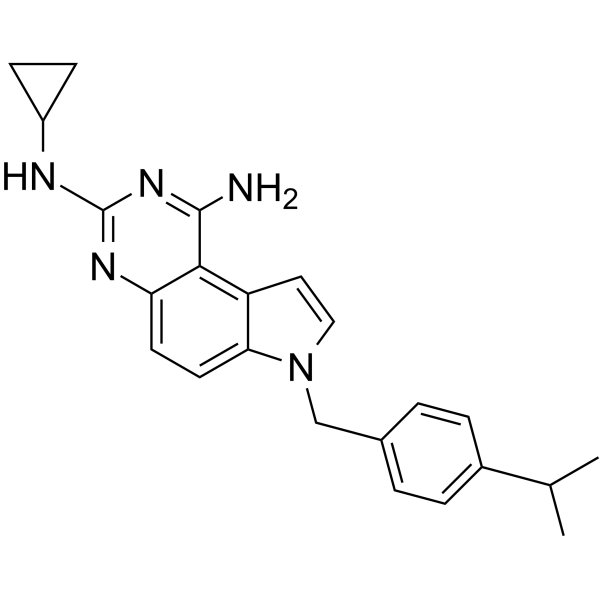
- HY-124750
-
-
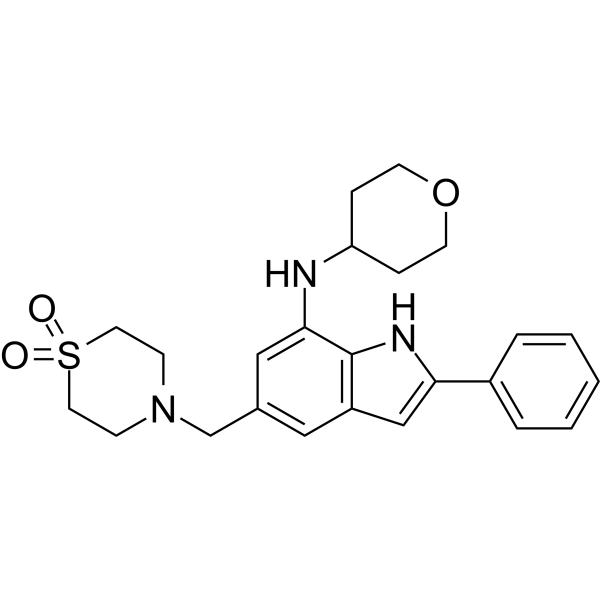
- HY-155517
-
|
|
NOD-like Receptor (NLR)
Pyroptosis
|
Inflammation/Immunology
|
|
INF200 (compound 5) is a sulfonylurea-based inhibitor of NLRP3 and NLRP3-mediated pyroptosis. INF200 has beneficial cardiometabolic effects in rat model of high-fat diet (HFD)-induced metaflammation,and shows anti-inflammatory activity to (10 μM) decreases IL-1β release in human macrophages. INF200 improves glucose and lipid profiles,and attenuates systemic inflammation and biomarkers of cardiac dysfunction (particularly BNP). INF200 also improves myocardial damage-dependent ischemia/reperfusion injury (IRI) in hemodynamic evaluation .
|
-
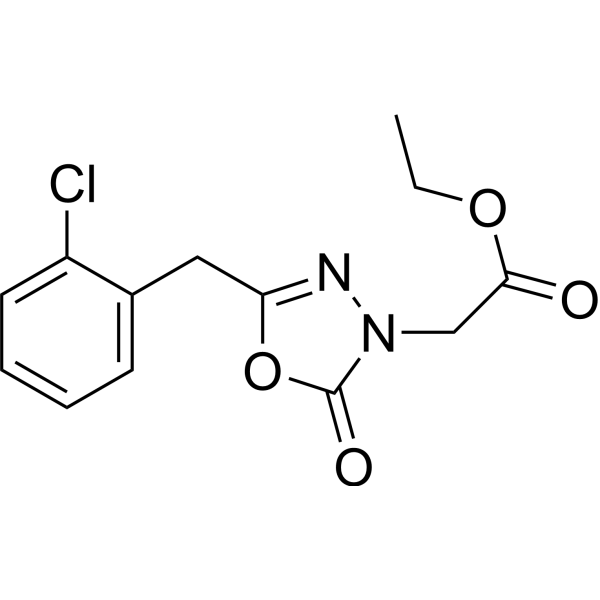
| Cat. No. |
Product Name |
Type |
-
- HY-E70008
-
|
|
Biochemical Assay Reagents
|
|
Lumbokinase capsules attenuates myocardial ischemia-reperfusion (I-R) injury through the activation of Sirt1 signaling, and thus enhances autophagic flux and reduces I-R-induced oxidative damage, inflammation and apoptosis .
|
| Cat. No. |
Product Name |
Target |
Research Area |
-
- HY-106262B
-
|
KAI-9803 hydrochloride; BMS-875944 hydrochloride
|
PKC
|
Cardiovascular Disease
Inflammation/Immunology
|
|
Delcasertib (KAI-9803) hydrochloride is a potent and selective δ-protein kinase C (δPKC) inhibitor. Delcasertib (KAI-9803) hydrochloride could ameliorate injury associated with ischemia and reperfusion in animal models of acute myocardial infarction (MI) .
|
-
- HY-P1098
-
Ac2-26
3 Publications Verification
|
NF-κB
|
Inflammation/Immunology
|
|
Ac2-26, an active N-terminal peptide of annexin A1 (AnxA1), attenuates ischemia-reperfusion-induced acute lung injury. Ac2-26 also decreases AnxA1 protein expression, inhibits the activation of NF-κB and MAPK pathways in the injured lung tissue .
|
-
- HY-P1098A
-
|
|
NF-κB
|
Inflammation/Immunology
|
|
Ac2-26 TFA, an active N-terminal peptide of annexin A1 (AnxA1), attenuates ischemia-reperfusion-induced acute lung injury. Ac2-26 also decreases AnxA1 protein expression, inhibits the activation of NF-κB and MAPK pathways in the injured lung tissue .
|
-
- HY-106262
-
|
KAI-9803; BMS-875944
|
PKC
|
Cardiovascular Disease
Inflammation/Immunology
|
|
Delcasertib (KAI-9803) is a potent and selective δ-protein kinase C (δPKC) inhibitor. Delcasertib (KAI-9803) could ameliorate injury associated with ischemia and reperfusion in animal models of acute myocardial infarction (MI) .
|
-
- HY-P3199
-
|
|
PKC
|
Inflammation/Immunology
|
|
PKCβII Peptide Inhibitor I is a PKCβII inhibitor. PKCβII Peptide Inhibitor I shows cardioprotective effects in rat cardiac Ischemia/reperfusion injury model. PKCβII Peptide Inhibitor I also prevents vascular endothelial dysfunction .
|
-
- HY-119152
-
|
|
Insulin Receptor
Tyrosinase
Akt
|
Others
|
|
CMX-2043 is a novel analogue of α-Lipoic Acid (HY-N0492). CMX-2043 is effective in antioxidant effect, activation of insulin receptor kinase, soluble tyrosine kinase, and Akt phosphorylation. CMX-2043 shows protection against ischemia-reperfusion injury (IRI) in rat model .
|
-
- HY-106275
-
|
Fibrin-derived peptide Bβ15-42
|
Flavivirus
Dengue virus
|
Cardiovascular Disease
|
|
FX-06 (Fibrin-derived peptide Bβ15-42) is a fibrin Bbeta chain-derived peptide. FX-06 binds to VE-cadherin and inhibits leukocyte transmigration and initiates VE-cadherin-mediated signaling. FX-06 can be used in the research of ischemia/reperfusion injury, Dengue shock syndrome (DSS) .
|
-
- HY-P1556
-
|
|
PKG
|
Cardiovascular Disease
|
|
Vasonatrin Peptide (VNP) is a chimera of atrial natriuretic peptide (ANP) and C-type natriuretic peptide (CNP). Vasonatrin peptide possesses the venodilating actions of CNP, the natriuretic actions of ANP, and unique arterial vasodilating actions not associated with either ANP or CNP. Vasonatrin Peptide protects the diabetic heart against ischemia-reperfusion injury by inhibiting ER stress via the cGMP-PKG signaling pathway .
|
-
- HY-P1556A
-
|
|
PKG
|
Metabolic Disease
|
|
Vasonatrin Peptide (VNP) TFA is a chimera of atrial natriuretic peptide (ANP) and C-type natriuretic peptide (CNP). Vasonatrin peptide TFA possesses the venodilating actions of CNP, the natriuretic actions of ANP, and unique arterial vasodilating actions not associated with either ANP or CNP. Vasonatrin Peptide TFA protects the diabetic heart against ischemia-reperfusion injury by inhibiting ER stress via the cGMP-PKG signaling pathway .
|
-
- HY-P5754B
-
|
|
Apoptosis
|
Neurological Disease
|
|
TAT-NEP1-40 acetate is a therapeutic candidate for axonal regeneration and functional recovery after stroke. TAT-NEP1-40 acetate can protect PC12 cells against oxygen and glucose deprivation (OGD) and promote neurite outgrowth. TAT-NEP1-40 acetate protects the brain against ischemia/reperfusion injury through inhibition of neuronal apoptosis. TAT-NEP1-40 acetate can be efficiently delivered into the rat brains .
|
-
- HY-P1098B
-
|
|
IKK
|
Inflammation/Immunology
|
|
Ac2-26 ammonium is the N-terminal peptide of annexin 1, and has anti-inflammatory activity. Ac2-26 ammonium induces a decrease in IKKβ protein in lysosomes by chaperone-mediated autophagy (CMA). Ac2-26 ammonium ameliorates lung ischemia-reperfusion injury. Ac2-26 ammonium also inhibits airway inflammation and hyperresponsiveness in an asthma rat model .
|
-
- HY-P5762A
-
|
PNX-14 TFA
|
GnRH Receptor
|
Cardiovascular Disease
Neurological Disease
Metabolic Disease
Inflammation/Immunology
|
|
Phoenixin-14 (PNX-14) TFA, a BBB-penatrable neuropeptide, has anxiolytic, cardioprotective and neuroprotective effect. Phoenixin-14 TFA can regulate pituitary gonadotrophin secretion by upregulating the GnRH receptor mRNA. Phoenixin-14 TFA stimulates insulin secretion. Phoenixin-14 TFA also protects mice from ischemia/reperfusion (IR) injury. PNX-14 TFA prevents oxidative stress by reducing ROS and increasing GSH .
|
| Cat. No. |
Product Name |
Target |
Research Area |
-
- HY-P99765
-
|
anti-LFA1
|
Integrin
|
Inflammation/Immunology
|
|
Odulimomab (anti-LFA1) is an anti-LFA-1 monoclonal antibody. Odulimomab inhibits proliferation of T lymphocyte and shows protective effects against ischemia and reperfusion injury. Odulimomab can be used for the research of transplant rejection and immunological disease .
|
-
- HY-P99553
-
|
42-89-glycoprotein; WAY164339; pMT21:PL85
|
Inhibitory Antibodies
|
Others
|
|
Torapsel (42-89-glycoprotein; WAY164339) is a fusion protein with immunoglobiln. Torapsel can be used to research the prevention of ischemia reperfusion injury.
|
-
- HY-P99886
-
|
h5G1. 1-SC
|
Complement System
Apoptosis
|
Cardiovascular Disease
Neurological Disease
|
|
Pexelizumab (h5G1. 1-SC) is a humanized scFv monoclonal antibody directed against the C5 complement component. Pexelizumab inhibits apoptosis and leukocyte infiltration. Pexelizumab can be used for the research of cerebral IR injury and myocardial infarction .
|
| Cat. No. |
Product Name |
Category |
Target |
Chemical Structure |
| Cat. No. |
Product Name |
Chemical Structure |
-
- HY-13315S1
-
|
|
|
Montelukast-d6 (sodium) is the deuterium labeled Montelukast (sodium). Montelukast sodium is a potent, selective and orally active antagonist of cysteinyl leukotriene receptor 1 (Cysltr1). Montelukast sodium can be used for the reseach of asthma and liver injury. Montelukast sodium also has an antioxidant effect in intestinal ischemia-reperfusion injury, and could reduce cardiac damage[1].
|
-

-
- HY-W015061S
-
|
|
|
N-(Phenylacetyl-d5)glycine is the deuterium labeled Phenylacetylglycine. Phenylacetylglycine is a gut microbial metabolite that can activate β2AR. Phenylacetylglycine protects against cardiac injury caused by ischemia/reperfusion[1][2].
|
-

-
- HY-13315S
-
|
|
|
Montelukast-d6 is the deuterium labeled Montelukast (sodium). Montelukast sodium is a potent, selective and orally active antagonist of cysteinyl leukotriene receptor 1 (Cysltr1). Montelukast sodium can be used for the reseach of asthma and liver injury. Montelukast sodium also has an antioxidant effect in intestinal ischemia-reperfusion injury, and could reduce cardiac damage[1].
|
-

Your information is safe with us. * Required Fields.
Inquiry Information
- Product Name:
- Cat. No.:
- Quantity:
- MCE Japan Authorized Agent:


















































































